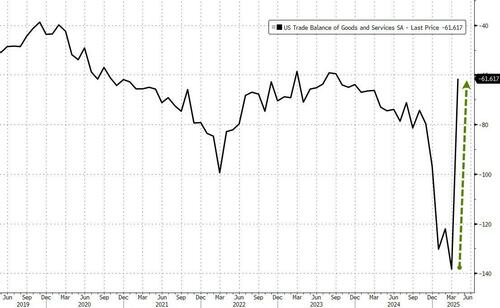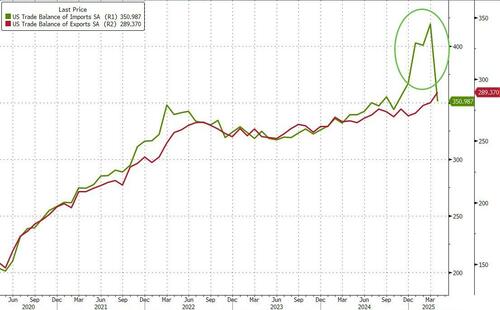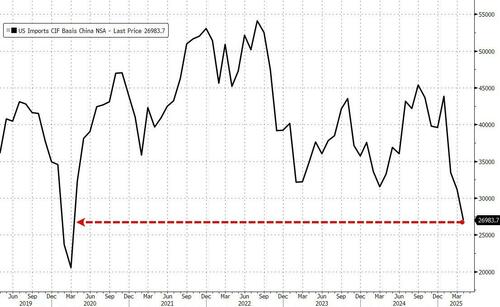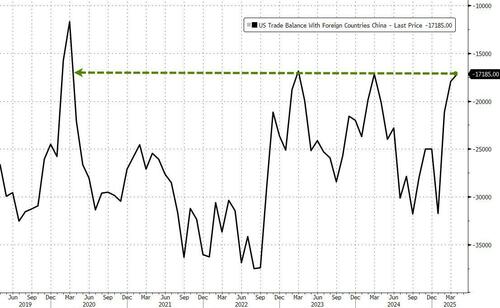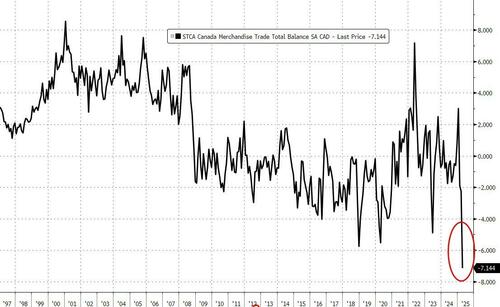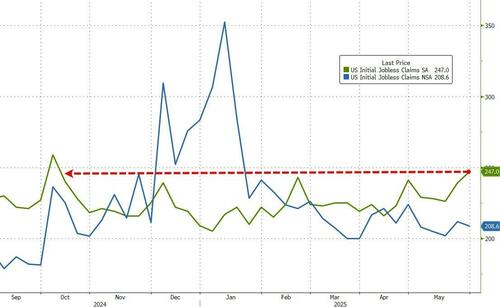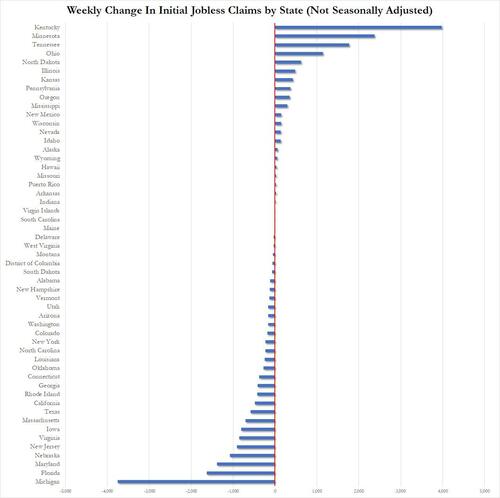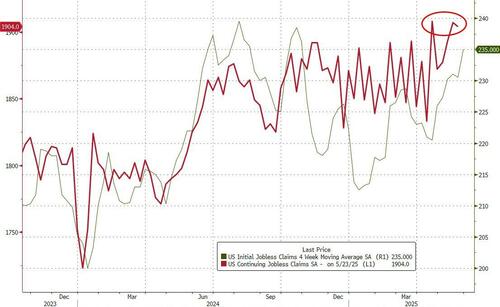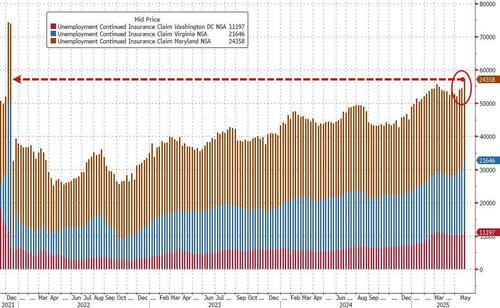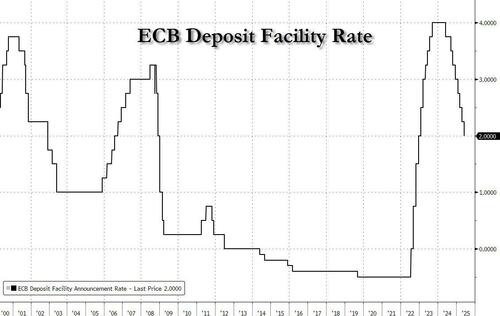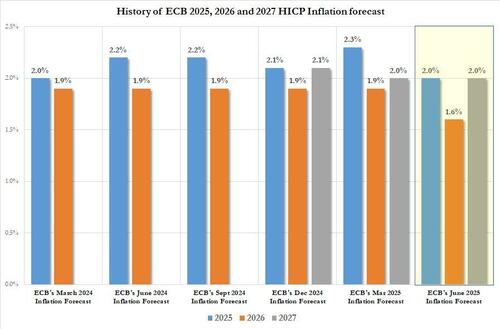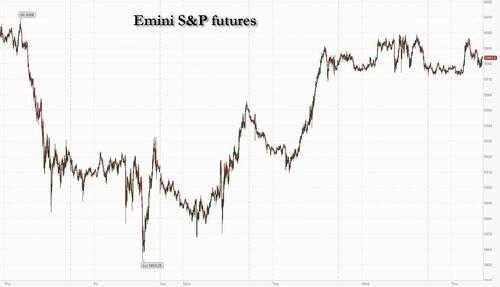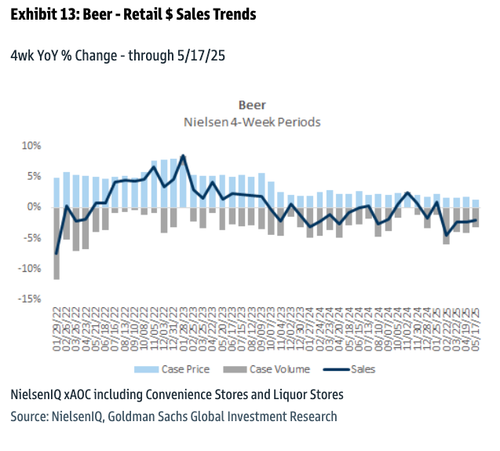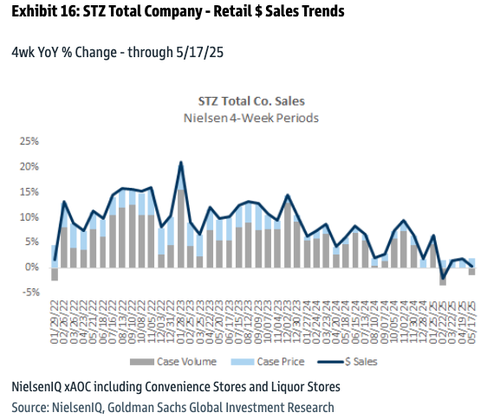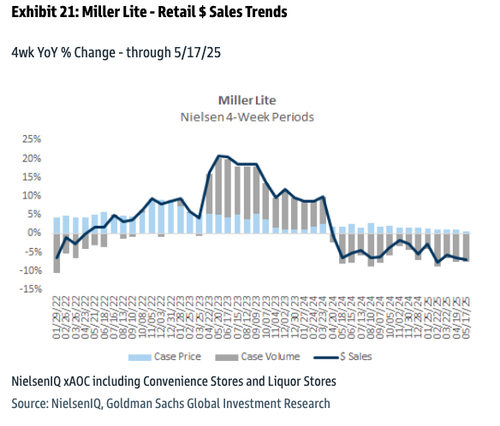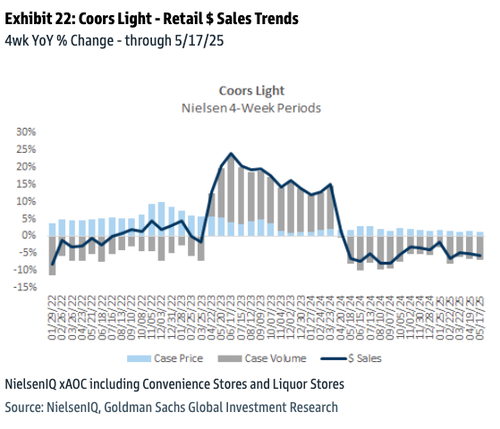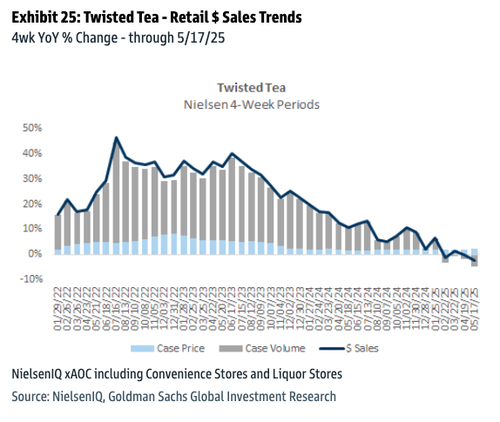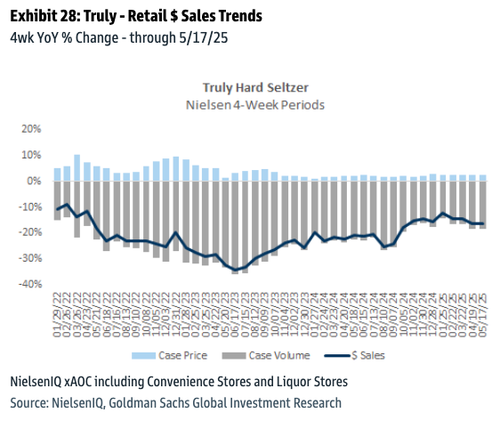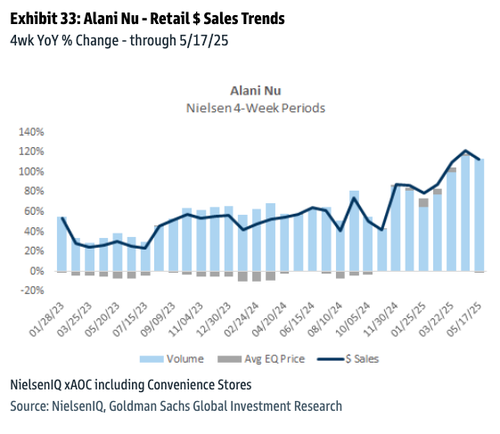“What is perfection in love? Love your enemies in such a way that you would desire to make them your brothers … For so did He love, Who hanging on the Cross, said ‘Father, forgive them, for they know not what they do.’” (Luke 23:34)
Distinction Matter - Subscribed Feeds
-
Site: LifeNews
The ACLJ is taking decisive action to defend the constitutional rights of pro-life advocates who faced discriminatory enforcement and wrongful arrest for peacefully exercising their First Amendment freedoms. We’ve told you about our defense of the Knotts family, who faced criminal charges for simply advocating for the lives of unborn babies outside an abortion clinic. As the trial began, with a packed courtroom watching, the prosecution folded. It dismissed the wrongful criminal charges entirely.
Now we’ve gone on the offensive to defend pro-life advocacy. We’ve filed a federal lawsuit on behalf of Zack and Lindsay Knotts, challenging their unconstitutional arrest and an unconstitutional city ordinance that silences disfavored speakers while protecting those with opposing viewpoints.
The Story So Far
What happened to the Knotts family in Cuyahoga Falls, Ohio, represents a textbook case of viewpoint discrimination – an egregious violation of the First Amendment. The shocking details of their treatment reveal a deliberate pattern of government censorship based solely on the content of their pro-life message.
Get the latest pro-life news and information on X (Twitter). Follow @LifeNewsHQ//
On December 28, 2024, the Knotts traveled to the Northeast Ohio Women’s Center, an abortion clinic, to peacefully exercise their First Amendment rights, engaging in sidewalk evangelism and pro-life advocacy. What happened next exposed a troubling pattern of government officials weaponizing local ordinances to silence religious and pro-life speech.
Zack used a battery-powered megaphone – quieter than ambient traffic noise – to share his life-affirming message from a public sidewalk. Meanwhile, abortion clinic escorts actively worked to drown out his speech using their own sound devices, including whistles and kazoos, while making threats against the couple.
One escort even told Zack to “suck-start a shotgun.” During a previous encounter, Zack had told escorts how his mother-in-law had considered an abortion while pregnant with his now wife, and if she had gone through with it, his wife “should be dead.” An escort interrupted, stating, “We can fix that.”
Despite this harassment and the escorts’ use of the same types of sound devices prohibited by the city’s noise ordinance, only Zack was arrested and cited.
The Discriminatory Arrest
The circumstances of Zack’s arrest reveal the true motivation behind the police action:
- A Biased Complaint: A nearby resident supposedly called the police complaining specifically about Zack’s pro-life message – notably, she did not complain about the escorts’ kazoos and whistles, only the pro-life speech.
- No Firsthand Witness: The arresting officers, Sergeant Dobney and Officer Paratore, never personally witnessed Zack using the megaphone. By the time they arrived, the megaphone’s batteries had already died. So they could not possibly have known if his megaphone was loud enough to violate the ordinance – which it wasn’t.
- A Biased Investigation: The police only took a statement from Officer Oldham, who was working off-duty as private security for the abortion clinic – creating an obvious conflict of interest. No other witnesses were questioned.
- Selective Enforcement: Despite knowledge of the escorts’ threats, noise-making, and harassment, only Zack was arrested, cited, and prosecuted.
- Chilling Threats: When Lindsay tried to report the threats against her husband, she was told they were “not a crime.” Sergeant Dobney then threatened that Zack would be arrested again if he caused “annoyance” in the future – even without amplified sound.
The impact of this unconstitutional enforcement extends far beyond one arrest. The Knotts now fear exercising their constitutional rights, knowing they face arrest while their opponents remain free to engage in identical or worse conduct. This chilling effect on protected speech is precisely what the First Amendment was designed to prevent. When citizens must self-censor their constitutionally protected speech due to fear of government retaliation, the Constitution has been violated.
An Ordinance Designed To Discriminate
Cuyahoga Falls’ Ordinance § 509.03(a)(6) prohibits amplified sound that might cause “inconvenience or annoyance to persons of ordinary sensibilities” – vague language that invites arbitrary enforcement. But the biggest constitutional problem lies in the ordinance’s exemptions, which favor certain organizations while discriminating against individual citizens. The law specifically exempts amplified sound from educational organizations and charitable organizations, for example.
This creates an impermissible hierarchy of speakers, in direct violation of the First Amendment. The Supreme Court has repeatedly held that the government cannot grant preferred status to certain speakers while silencing others, especially in traditional public forums like sidewalks.
Three Constitutional Violations, One Clear Pattern of Discrimination
Our lawsuit challenges this discriminatory ordinance on several constitutional grounds. In our motion for preliminary injunction, we reveal three distinct ways Cuyahoga Falls’ ordinance violates the Constitution:
- Facial Invalidity Under the First Amendment: The ordinance’s speaker-based exemptions transform what should be a content-neutral noise regulation into an unconstitutional content-based restriction on speech. Such regulations are presumptively unconstitutional and subject to strict scrutiny – a test this ordinance clearly fails. This creates a two-tiered system where politically favored institutions can use amplification freely, but individual citizens exercising their constitutional rights cannot.
- Unconstitutional Vagueness: The ordinance prohibits causing “inconvenience, annoyance, or alarm” through “unreasonable noise” – but fails to define any of these subjective terms. What constitutes “unreasonable noise”? What level of “annoyance” triggers enforcement? The law provides no guidance, leaving enforcement entirely to the personal discretion of police officers.This vagueness creates exactly the kind of arbitrary enforcement we witnessed: Zack’s amplified pro-life message was deemed “unreasonable,” while equally loud pro-abortion counter-protesters using musical instruments specifically mentioned in the ordinance faced no consequences.
- Viewpoint Discrimination: The selective enforcement against pro-life speakers while tolerating identical or worse conduct from pro-abortion advocates constitutes impermissible viewpoint discrimination. Most troubling of all is the selective enforcement pattern. The Knotts and abortion escorts were engaged in directly comparable conduct – using sound devices to amplify their messages on the same public sidewalk. Yet only the pro-life speakers faced arrest and prosecution.When Lindsay informed officers about the threats made against them, she was told these statements were “not a crime” – while her husband sat in the back of a police cruiser for using a megaphone.
One of the central cases we rely on to defend pro-life advocates is our very own victory against an abortion buffer zone law in Louisville, Kentucky. That court decision requiring an injunction against a speech-suppressing buffer zone is crucial to holding the government accountable for vague laws that infringe on speech. The First Amendment demands that pro-life advocates have their rights protected.
Why This Case Matters
This lawsuit represents more than just one family’s fight for justice – it’s about preserving fundamental constitutional principles that protect all Americans.
The government prosecuted Zack for months before ultimately dismissing the case on the day of trial – but only after the constitutional damage was done. The arrest, prosecution, and ongoing threat of future enforcement have already achieved the government’s apparent goal: silencing disfavored speech.
This case exemplifies why the ACLJ exists: to defend the constitutional rights of Americans against government overreach and discrimination. We refuse to allow local officials to use vague ordinances as weapons against unpopular speech, and we will not stand by while religious and pro-life voices are silenced through selective enforcement.
The First Amendment doesn’t guarantee freedom from annoyance or inconvenience – it guarantees freedom of speech, especially for unpopular viewpoints that challenge the status quo. When government officials start deciding which messages deserve protection based on their own preferences, we’re all at risk.
Our lawsuit seeks:
- A declaration that the ordinance is unconstitutional
- An injunction preventing future discriminatory enforcement
- Compensation for constitutional violations
- Return of Zack’s seized megaphone
- Attorney’s fees under federal civil rights law
The Broader Battle for Religious Freedom
This case is part of a larger assault on religious freedom and pro-life speech across America. From college campuses to city sidewalks, government officials are increasingly willing to silence religious viewpoints while protecting secular ones.
The Supreme Court of the United States has repeatedly affirmed that the First Amendment does not permit the government to make such distinctions. In Reed v. Town of Gilbert, the Court emphasized that content-based restrictions on speech are presumptively unconstitutional. In Rosenberger v. University of Virginia, the Supreme Court held that viewpoint discrimination is an “egregious form of content discrimination.”
These precedents are clear: The government cannot silence speakers based on the religious or political content of their message.
The Knotts family courageously chose to stand up for their constitutional rights rather than submit to government censorship. Their willingness to challenge this discrimination in federal court will help protect the rights of all Americans to engage in peaceful religious and political expression.
Your support enables the ACLJ to take on these critical cases without charging our clients, ensuring that constitutional rights aren’t limited to those who can afford expensive litigation. Together, we can continue fighting for the fundamental freedoms that make America exceptional.
LifeNews Note: Nathan Moelker is Senior Associate Counsel at the ACLJ’s Washington, D.C. office. Liam R. Harrell is Associate Counsel at the American Center for Law & Justice (ACLJ) Washington, D.C., office.

The post Pro-Life Advocate Fights Back After He’s Arrested for Preaching Gospel Outside Abortion Biz appeared first on LifeNews.com.
-
Site: Rorate CaeliFrom reader N.A. in Sweden, in a letter sent to friends and acquaintances of John Bogärde, a pioneer of the revival of the Traditional Latin Mass in Sweden and a father of seven, who recently passed away at 44: I would also like to share with you these photos from John's funeral. It was such an astonishing and moving experience. The Requiem Mass was celebrated in the Church of Husaby; New Catholichttp://www.blogger.com/profile/04118576661605931910noreply@blogger.com
-
Site: Mises InstituteIf we really want America to be "great" it must first be free.
-
Site: Mises Institute
-
Site: LifeNews
The numbers coming out of Planned Parenthood’s recently released annual report are horrifically vulgar. One thing is undeniably clear to anyone brave enough to look under the hood: Despite its lies, Planned Parenthood’s core business is abortion. Yet Planned Parenthood desperately throws up smokescreens, attempting to mask the reality that abortion remains its primary focus – and its most profitable one.
The abortion behemoth would like you to believe otherwise. The problem for Planned Parenthood is that the numbers just don’t lie.
Gone are the days of maintaining a facade of providing comprehensive healthcare. Planned Parenthood’s sharp decline in non-abortion services continues to drop like a rock. Fewer resources than ever are being devoted to life-affirming services or preventative care despite the massive increases in taxpayer funding.
Record-Breaking Numbers for Killing Babies
In its latest annual report, paradoxically titled “A Force for Hope,” Planned Parenthood appears to be living its best life, boasting about the 402,230 babies it killed last year – an all-time high for abortions. This represents roughly 40% of all abortions performed in the United States during the same period. Regrettably, the organization has brought anything but “hope” to the women it targets, to those damaged by abortion, and not to mention the millions of babies who don’t make it out of a Planned Parenthood clinic alive.
LifeNews is on GETTR. Please follow us for the latest pro-life news
Disturbingly, this increase occurred after the Dobbs decision that overturned Roe v. Wade. Even as many states restricted abortions, Planned Parenthood found a way to end more lives.
Also worthy of note, through Planned Parenthood Direct, which sounds like a diabolical subscription service of death, it speedily provided an additional 560,000 “emergency contraception kits” – code for abortion pills like the morning-after pill – an increase over the previous year. As we’ve explained before, Planned Parenthood does not count these potential abortifacients (any drug or chemical that induces abortion) in its abortion total. Yet we know that “emergency contraception kits” will be used to end the lives of innocent babies.
And to further their abortion numbers, Planned Parenthood has continued its new niche in the post-Dobbs era: abortion tourism. According to the report, in its second year of providing such services, it spent over $3.4 million in “direct patient assistance” to help transport 12,500 women across state lines to kill their babies – a disturbing practice tailor-made for sex traffickers. This support covered not just the abortion procedure but also transportation, meals, hotel stays, and even dependent care. On average, that’s $275 per baby to help facilitate the death of an unborn child.
Taxpayer Funding Ballooned Under the Biden Administration
As Americans struggled with inflation and worked harder than ever just to get groceries into their refrigerators, Biden and his political allies threw huge amounts of funding at Planned Parenthood as it raked in nearly $800 million in taxpayer dollars – also an all-time high. The jump in taxpayer funds received by Planned Parenthood last year was game-changing for the organization, receiving nearly 12% more than the previous year. To put that into perspective, this single-year surge in taxpayer support nearly matches the total increase Planned Parenthood saw over the previous five-year span (2018–2023).
For the first time, it directly admitted that this massive influx of taxpayer dollars increases abortions. In response to the House of Representatives voting to defund the abortion giant, Planned Parenthood actually put out a press release stating, “If this bill passes, people will lose access to essential, often lifesaving care – cancer screenings, birth control, STI testing, and yes, abortion.”
Shockingly, Planned Parenthood actually said the quiet part out loud.
This statement admits what pro-abortion groups often deny: that abortion is included in the “essential” care funded by taxpayers. By warning that abortion access is threatened if funding is cut, it proves that tax dollars are directly tied to abortion services. It exposes the reality that defunding Planned Parenthood would impact abortion – confirming our tax dollars support the killing of unborn babies.
Cancer Screenings Take a Back Seat at Planned Parenthood
Planned Parenthood is also engaged in a bold-faced lie. While publicly claiming that defunding the abortion giant would cause “people [to] lose . . . cancer screenings,” the data tells a VERY different story. Since 2009, Planned Parenthood’s cancer screenings have dropped by 76% (with last year being the second-lowest on record), even as their taxpayer revenue has nearly doubled during the same time period – even as cancer diagnoses have exploded among our population. In the most recent report, pap tests and breast exams amounted to just 364,600 services – a shockingly low number for an organization that claims to care about women’s health. In comparison, abortion accounted for nearly as many services (402,230) as all cancer screenings combined.
Breast exams have especially seen a significant drop. Planned Parenthood performed a paltry 191,000 exams in 2024 – a 77% drop since 2009, while breast cancer diagnoses nationwide have increased year after year. That’s a troubling trend – and one that Planned Parenthood should be embarrassed to be on the wrong side of. Planned Parenthood continues to tell us it is focused on women’s health and not abortions. Yet the more money we give it, the less “good” it does and the more babies it kills.
The Trend for Non-Abortion Services Is Ugly
Consider these additional categories that saw steep declines in services – all while Planned Parenthood received a record amount of government funding. This stark contrast raises serious questions about priorities and accountability. If taxpayer dollars are at an all-time high, why are lifesaving services at an all-time low?
- Since 2009, Planned Parenthood has seen a 76% drop in prenatal services such as ultrasounds. The last thing Planned Parenthood wants is for the mother to connect with her baby via ultrasound. According to the Lozier Institute, 75% of women at risk for abortion will deliver their baby after viewing an ultrasound.
- Adoption referral numbers, another life-affirming alternative, tell a similar story. Last year, Planned Parenthood made just 2,148 adoption referrals. That’s roughly 1 referral for every 187 abortions performed. In 2011, that ratio was 1 to 145. The numbers speak for themselves, and they reflect a growing neglect of options that don’t end in abortion. So much for being pro “choice.”
- Since 2016, Planned Parenthood has seen a 42% drop in well-woman exams and preventative care visits.
- A drop of 75% in colposcopy procedures, or cervical exams, since 2009.
- 129,594 preventive care visits were performed in 2024, down nearly 43% since 2016.
As its latest report affirms, Planned Parenthood isn’t going down easily. In the wake of the undercover videos that exposed Planned Parenthood’s gruesome sale of aborted babies’ body parts, individual states across the country said enough was enough. They took legal and legislative action to defund Planned Parenthood – to stop giving our money to the abhorrent abortion industry. One of the first was South Carolina, which sought to block state taxpayer funds, or Medicaid reimbursements, from supporting abortion clinics, prompting an immediate federal lawsuit by Planned Parenthood.
That case, Medina v. Planned Parenthood South Atlantic, is now before the U.S. Supreme Court, and we filed an amicus brief supporting South Carolina. The case challenges whether individual Medicaid recipients can sue states that disqualify abortion providers like Planned Parenthood from Medicaid funding. In our amicus brief, we argue that post-Dobbs, abortion policy and funding decisions should lie with the states. Forcing states to fund abortion providers undermines state sovereignty and violates the principles of the Medicaid Act. We expect a decision by the end of June.
In addition, we are urging Congress to pass legislation defunding Planned Parenthood at the federal level. Not another dime of our money should go to a deceptive killing machine like Planned Parenthood.
The ACLJ is battling Planned Parenthood and the abortion industry from multiple directions. We are defending pro-life advocates whose constitutional rights are criminalized and whose voices are silenced. We are not only filing to defend Pregnancy Resource Centers but also running PR campaigns to counter state-sponsored smear campaigns. In a post-Dobbs world, we are battling in the states to protect pro-life policies through the implementation of a multi-state effort. And, of course, we are exhausting all avenues to defund Planned Parenthood of our taxpayer dollars – once and for all.
The ACLJ has been relentlessly battling for the unborn for 35 years, and we have no plans of slowing down in our pursuit of justice for all, born or unborn. Join us.
LifeNews Note: Matthew Clark writes for the American Center for Law and Justice and is a staff attorney.

The post Planned Parenthood Kills More Babies, Cancer Screenings Drop 79%, Breast Exams Drop 77% appeared first on LifeNews.com.
-
Site: Zero HedgeUS Trade Deficit Shrinks By Most On Record In April As Imports PlungedTyler Durden Thu, 06/05/2025 - 08:49
As the front-running of tariffs abruptly ended, so imports to the US collapsed in April - by the most on record - shrinking the trade deficit by the most on record...
Source: Bloomberg
The gap in goods and services trade shrank 55.5% from the prior month, to $61.6 billion, the smallest since 2023 and more than completely reversing the sharp widening that occurred in the first quarter.
Imports of goods and services declined a record 16.3% in April, while exports increased 3%.
Source: Bloomberg
The April trade report showed imports of consumer goods slumped $33 billion, largely due to a sharp decline in inbound shipments of pharmaceutical preparations.
Imports from China plunged to their lowest since March 2020...
Source: Bloomberg
...shrinking the trade deficit with China to its smallest since March 2020...
Source: Bloomberg
Canadian exports plunged by the most in nearly 17 years outside of the pandemic, widening the country’s merchandise trade deficit to the largest on record. The deficit far exceeded even the most pessimistic projection in a Bloomberg survey of economists.
Source: Bloomberg
The sharp narrowing in April puts trade on track for a large contribution to US GDP in Q2 after being largely responsible for a 0.2% annualized decline in first-quarter GDP. We look forward to The Atlanta Fed 'adjusting' their GDPNOW model again...
-
Site: Rorate CaeliOn the occasion of the consecration of the pilgrimage, a traditional mass was celebrated in the prestigious church of the Madeleine (Saint Mary Magdalen), in Paris. [Source: Notre-Dame de Chrétienté X account]New Catholichttp://www.blogger.com/profile/04118576661605931910noreply@blogger.com
-
Site: PaulCraigRoberts.org
Israel’s Two-bit Punk American Puppet
The United States has vetoed a draft UN Security Council resolution demanding a permanent ceasefire in Gaza and calling for removing Israel’s restrictions on aid deliveries to starving Palestinians.
-
Site: PaulCraigRoberts.org
Lenin’s Question Is the Question of Our Time
Paul Craig Roberts
Now that some total idiot in the Trump regime has green-lighted an attack on Russian strategic forces, John Helmer raises for Putin Lenin’s question, “What is to be done?”
As I understand it, Washington’s attack on Russian strategic forces is grounds under current Russian war doctrine for Putin to push the button. But Putin, unlike Lenin, is a balancer, not a person who acts. Is Putin so desperate to avoid war that he is bringing war upon us?
There seems to be more awareness among Russian people than in Washington and Europe of the seriousness of the situation. With too long of a wait, it eventually dawned on the White House that Trump must be disassociated from the attack, as otherwise the attack is easily interpreted as Washington’s declaration of war on Russia. According to the White House announcement, Trump was not informed in advance of the attack on the Russian strategic bombing fleet, which in keeping with the treaty is kept lined up openly on air fields. One problem with this disavowal is that the Secretary of State or the Defense Secretary reportedly watched via the digital revolution the attack as it happened. So Trump’s government knew, but Trump didn’t?
What confidence does the attack on Russian strategic forces give Putin that Trump is sincere about peace negotiations?
Why does Trump announce constructing a trillion dollar dome to protect the US from incoming missiles when the costless alternative is a mutual security agreement, a great power agreement, with Russia and China? The answer is that the US military/security complex wants the money. The dome will be useless, because hypersonic missiles on random jig-jag trajectories cannot be intercepted. If Trump is the peace president, why not simply agree to a mutual security agreement?
Another problem with the White House’s disavowal is Trump’s competence as president. Let’s examine the implication of President Trump not being informed of an attack that under Russian war doctrine is sufficient to launch nuclear missiles against the United States and Europe. How can it be that it is not in the hands of the President of the United States whether or not to undertake a military action that could initiate nuclear war? Is this a sign of President Trump’s incompetence or of his irrelevance?
It is not only the White House that is making light of a stupid action that could have unleashed nuclear war, but also all of Washington, Western Europe, and the Western whore media, a collection of despicable people who lie for their living. We are facing an existential threat to the continued existence of life on earth and the idiot whore media is telling us about some celebrity’s concern with her sex life.
From the beginning of Putin’s ever-widening, never-ending war over a few kilometers in the Russian provinces Communist officials assigned to Ukraine I have said that Putin’s unwillingness to use sufficient force to terminate the conflict would result in opportunities for the US and NATO to become involved in the conflict with their prestige involved. Consequently, the conflict would spin out of control, which it came close to doing with the attack on Russian strategic forces.
How many non-responses to provocations can Putin survive? Are Russians so Westernized and brainwashed that they have no national pride? Are they willing to be humiliated forever by leadership that declares red lines but always turns the other cheek? Why is no one in the West concerned with these serious questions? Is it because no one takes Russia seriously? Is Putin causing World War III because he has convinced the West not to take Russia seriously?
Washington’s neoconservatives might succeed in destabilizing Putin, considering all the help Putin is giving them, but will his replacement be an American puppet or a person of action capable of recognizing an enemy when he sees one? No intelligent Russian would sacrifice Russian lives in order to make unrealizable peace deals with people determined to destroy Russia. On what grounds can Russians believe in any agreement with the West?
If Putin is replaced by a Lenin, the Western World is over and done with.
We are watching the Trump regime fall apart. Elon Musk, one tower of strength, has left. Russian strategic forces are attacked, and Trump doesn’t know about it. Robert F. Kennedy, Jr., Secretary of Health and Human Services, announces that the deadly Covid vax will no longer be recommended for pregnant women and healthy children. The head of the CDC, a subordinate to the Secretary of Health and Human Services, gives the finger to his boss and announces that the Covid vax will be recommended for pregnant women and healthy children. Robert Kennedy announces that no vaccines will be approved without tests, and the CDC approves Big Pharma’s vaccine without the tests.
In other words, there is no Trump Administration in place. The Establishment rules. Trump and his government are irrelevant. Trump does the bidding of Israel and the military/security complex. Big Pharma, not Secretary Robert Kennedy, makes the decisions. Elon Musk gives up and goes home. The FBI director validates the unbelievable Epstein suicide narrative. The Trump Justice Department has held no one accountable for the attempted frame-up of President Trump by the CIA and FBI. Attorney General Bondi says weaponized law is halted, but as those responsible have not been held accountable, the Democrats will again weaponize law. The media remains weaponized.
I warned that this would be the result. I repeat what I wrote when Trump was making his comeback without opposition from the ruling establishment. The American Establishment decided to let Trump again be president. The Establishment knew that they could use the judiciary, the civil service, and Trump appointees who would betray Trump for success in the Establishment. I saw all of this in the Reagan administration with appointees, few being Reagan’s, betraying him for their advancement in the Ruling Establishment
The Establishment reasoned that the easiest way to eliminate “populist opposition” is to put their leader in the presidency, block him at every turn, thereby demoralizing his supporters. With their hope eviscerated, defeated people go home and accept whatever happens.
Trump was America’s last chance. If he were a young Julius Caesar, he might have succeeded. But like Julius Caesar, the Establishment was against him. Trump’s entire government consists of Israel’s puppets. They will do anything for Israel and little for America. The Zionist Trump regime has again vetoed a UN Security Council resolution against Israel’s on-going slaughter of Palestinians by bullets, bombs, starvation, and disease. War with Iran can still result from Iran’s refusals of Trump’s dictates that serve Israel’s interest. We still await the problems that the Trump regime will create with China.
Dear readers, you can expect war. No one in the Western World, nor Putin, has sufficient intelligence to avoid it. It is just a matter of time.
-
Site: Zero HedgeUS Jobless Claims Surge To 8 Month HighsTyler Durden Thu, 06/05/2025 - 08:38
The number of Americans filing for jobless benefits for the first time jumped to 247k last week (above the 239k expected) - the highest since October 2024...
Source: Bloomberg
A breakdown of weekly claims changes finds the biggest increases in Kentucky and Minnesota, and the biggest drops in Michigan and Florida.
Continuing claims remain above the 1.9 million Americans level for the second week in a row...
Source: Bloomberg
...with the DOGE-inspired 'Deep Tristate' region seeing claims surge to their highest since Dec 2021...
Source: Bloomberg
Despite Musk's obvious disappointment at the One Big Beautiful Bill's lack of spending cuts, he can be proud that he did his part to shrink the workforce of the leviathan...
-
Site: Zero HedgeECB Cuts Rates by 25bps As Expected, Slashes 2026 Inflation ForecastTyler Durden Thu, 06/05/2025 - 08:35
As expected by 52 out of 52 economists, and as fully priced in by the market, the ECB just cut deposits rates by 25bps to 2.00%, the 8th consecutive cut and one which will hardly make Trump any happier that the Fed still remains on hold.
According to UBS, the ECB statement set a hawkish tone in that the central bank seems content with the inflation outlook and doesn't express any concerns about inflation undershooting.
The ECB said in the statement: "Most measures of underlying inflation suggest that inflation will settle at around the Governing Council’s 2% medium-term target on a sustained basis". It also said inflation "is currently at around the Governing Council’s 2% medium-term target".
It also said that wage growth is still elevated but continues to moderate visibly, and profits are partially buffering its impact on inflation. Meanwhile, "the concerns that increased uncertainty and a volatile market response to the trade tensions in April would have a tightening impact on financing conditions have eased".
Taking a closer look at the ECB statement:
STANCE:
- Repeats will follow a data-dependent and meeting-by-meeting approach to determining the appropriate monetary policy stance
- Repeats not pre-committing to a particular rate path
TRADE:
- While the uncertainty surrounding trade policies is expected to weigh on business investment and exports, especially in the short term, rising government investment in defence and infrastructure will increasingly support growth over the medium term
LABOR MARKET:
- Higher real incomes and a robust labor market will allow households to spend more.
- Together with more favorable financing conditions, this should make the economy more resilient to global shocks.
MACRO PROJECTIONS:
- Lowers headline 2025 and 2026 inflation forecasts, raises 2025 core inflation forecast; 2025 growth unchanged
- In the context of high uncertainty, staff also assessed some of the mechanisms by which different trade policies could affect growth and inflation under some alternative illustrative scenarios
- Under this scenario analysis, a further escalation of trade tensions over the coming months would result in growth and inflation being below the baseline projections.
- By contrast, if trade tensions were resolved with a benign outcome, growth and, to a lesser extent, inflation would be higher than in the baseline projections.
HICP INFLATION:
- 2025: 2.0% (prev. 2.3%)
- 2026: 1.6% (prev. 1.9%)
- 2027: 2.0% (prev. 2.0%)
HICP CORE INFLATION (EX-ENERGY & FOOD):
- 2025: 2.4% (prev. 2.2%)
- 2026: 1.9% (prev. 2.0%)
- 2027: 1.9% (prev. 1.9%)
GDP:
- 2025: 0.9% (prev. 0.9%)
- 2026: 1.1% (prev. 1.2%)
- 2027:1.3% (prev. 1.3%)
To recap: the central bank revised down its headline CPI forecast for 2025 and 2026 by 0.3% to 2% and 1.6%, respectively, due to energy prices. 2027 headline inflation outlook is unchanged. Meanwhile, the central bank kept its core CPI forecasts unchanged. Core CPI is expected to be average 2.4% in 2025 and 1.9% in 2026 and 2027. Also, the central bank kept its GDP forecast unchanged. Staff see real GDP growth averaging 0.9% in 2025, 1.1% in 2026 and 1.3% in 2027.
Of the above, perhaps the most notable highlight is and the most important change was the sharp downward revision of the 2026 inflation forecast to 1.6% from 1.9%.
* * *
Earlier:
As UBS economist Paul Donovan writes this morning, a total of 52 out of 52 surveyed economists - not to mention markets - expect a quarter point ECB rate reduction today, the 8th in a row, adding rhetorically "How could so many economists possibly be wrong?" More to the point, he adds that President Trump is likely to become even more irate after criticizing the Federal Reserve for not cutting rates.
Rhetorical questions aside, here is what to expected, courtesy of Newsquawk
OVERVIEW: Given the uncertainties surrounding the trade outlook and progress on the inflation front, the ECB is expected to cut the deposit Rate by 25bps to 2.00%. With a rate reduction nailed on, focus will be on any hints over future easing plans. While Lagarde might not make any explicit mention of the future policy direction, any signs of dissent, whether via remarks by the President or sources after the meeting, could provide a guiding star for markets. Currently, markets see a total of 54bps of loosening by year-end (including the expected June cut).
PRIOR MEETING: Aprilʼs meeting saw a 25bps cut as expected and the old language around restrictiveness was removed. This took the ECB to the top end of its 1.75-2.25% neutral rate estimate. Accompanying forward guidance was unsurprisingly non-committal, though the statement did highlight increased uncertainty and an associated confidence impact that is “likely to have a tightening impact on financing conditions”; on this, participants were attentive to any hints around an offsetting policy response (i.e. dovish action). Just after the meeting, sources reported the decision to cut was unanimous. Lagarde didnʼt add too much, aside from stressing no argument was made for 50bps or other stimulus, though she made the point that they are viewing tariffs as a demand shock.
RECENT ECONOMIC DEVELOPMENTS : Flash inflation data for May saw Y/Y HICP decline to 1.9% from 2.2% (below target for the first time since September 2024). Core inflation declined to 2.4% from 2.7%, whilst services inflation saw a notable fall to 3.7% from 4.0%. The ECB Consumer Expectations Survey for April saw the 12-month ahead metric rise to 3.1% from 2.9%. In terms of market gauges, the EZ 5y5y inflation forward has ticked higher to 2.06% vs. circa 2.03% at the time of the prior meeting. On the growth front, Q1 GDP is currently estimated at 0.3% Q/Q vs. the Q4 print of 0.2%. More timely survey data from S&P Global showed manufacturing PMI for May climbed to 49.4 from 49.0, services slipped to 48.9 from 50.1, leaving the composite at 49.5 vs. prev. 50.4. The accompanying release noted “the eurozone economy just cannot seem to find its footing”. The unemployment rate remains at the historic low of 6.2%.
RECENT COMMUNICATIONS: Since the prior meeting, President Lagarde has remarked that levies are probably more disinflationary than inflationary. However, the net effect of tariffs is still uncertain. Chief Economist Lane is confident that the Bankʼs task to bring inflation back to 2% is “mostly completed”, however, services inflation is "still too high". The influential Schnabel of Germany is of the view that tariffs could be disinflationary in the short run but result in upside risk over the medium term. France's Villeroy has stated that interest rate normalisation within the EZ is probably incomplete. Typically-dovish, Panetta of Italy has remarked that there is reduced room to cut rates further, though the macro outlook is weak and trade tensions could weigh on this. Elsewhere, Cyprus' Patsalides has noted that a 50bp cut would only be justified if recession risks intensified with stronger disinflation. At the hawkish end of the spectrum, Austriaʼs Holzmann thinks the Bank should not lower rates in June or July.
RATES: Consensus looks for the ECB to cut rates by 25bps with markets assigning a 95% chance of such an outcome. Since the prior meeting, whilst there has been an easing of tensions between the US and China, which led to an improvement in the global trade outlook, a deal between the EU and the US remains elusive. The lack of progress prompted US President Trump to recommend a 50% tariff on the EU as of June 1st. This threat has since been pushed back to July 9th and the EU is increasing efforts to get an agreement. However, large gaps between the two sides remain and the growth outlook remains uncertain. Furthermore, as detailed above, progress on the inflation front means that policymakers have the green light to ease policy (also aided by the stronger EUR and declining oil prices). Assuming the ECB cuts by 25bps this week, the focus will be on any clues as to what comes thereafter, given the apparent split of views on the GC. The accounts of the ECB meeting (albeit when trade tensions were higher) showed that some members would have been comfortable with a 50bps reduction. Some of the more hawkish members on the GC may opt to dissent to the decision with Holzmann of the view that the ECB should not cut rates in June or July. Currently, markets see a total of 54bps of loosening by year-end (including the expected June cut).
MACRO PROJECTIONS: For the accompanying macro projections, Rabobank expects growth to be revised down a touch for both 2025 and 2026 while the inflation view is likely to be trimmed for 2025 to 2.0% (Mar. 2.3%) but increased for 2026 to 2.3% (Mar. 2.0%).
HICP INFLATION:
- 2025: 2.3%
- 2026: 1.9%
- 2027: 2.0%
HICP CORE INFLATION (EX-ENERGY & FOOD):
- 2025: 2.2%
- 2026: 2.0%
- 2027: 1.9%
GDP:
- 2025: 0.9%
- 2026: 1.2%
- 2027: 1.3%
-
Site: Rorate Caeliby Caminante WandererArgentina, June 5, 2025Almost a month has passed since the beginning of thge pontificate of Leo XIV. In this blog we said that we would be waiting for the first one hundred days, and there is still more than half of it to go. However, that does not prevent us from gradually getting an idea of his character, based on his words and first decisions.I have the impression, New Catholichttp://www.blogger.com/profile/04118576661605931910noreply@blogger.com
-
Site: Zero HedgeUS Equity Futures Unchanged Ahead Of ECB As Jobs Data LoomsTyler Durden Thu, 06/05/2025 - 08:15
US equity futures are unchanged, as they struggle for direction ahead of Friday’s payrolls report, following a series of data releases that offered mixed signals on the health of the economy. As of 8:00am, S&P futures are flat, having traded on either side of the unchanged line during the overnight session and followed a slurry of weak macro data releases which saw Wednesday's gains erase and recover, with the S&P ultimately ending the day flat. Nasdaq 100 futs are down 0.1% with Mag 7 stocks mostly higher except for TSLA (-1.6%). Stocks and bonds in Europe gained ahead of the ECB's expected 8th consecutive interest rate cut. The yield on 10-year US Treasuries steadied as Wednesday’s bond rally faded. The dollar reversed earlier losses even as gold surged to briefly top $3400. Commodities are mostly mixed with notable outperformance in silver (+3.1%). News flow since yesterday’s close has been largely muted: headlines continue to focus on trade negotiation development, particularly implication on rare earth curbs (BBG and CNBC) and upcoming Trump-Xi call.
In premarket trading, the Mag 7 stocks are mixed (Alphabet +1.3%, Amazon +0.7%, Meta +0.2%, Microsoft 0%, Tesla -2.6%, Nvidia -0.5%, Apple -0.3%). Broadcom shares rise 1% in premarket ahead of earnings due after the bell. Chewy shares (CHWY) are down 2.4% premarket after Jefferies analyst Kaumil Gajrawala cut the recommendation on the online retailer of pet products to hold from buy, writing that valuation appears “primed” for a first-quarter beat and raise that’s unlikely to happen. Dollar Tree Inc. shares (DLTR) are up 1.6% in premarket trading, after JPMorgan upgraded the discount retailer to overweight from neutral. Here are some other notable movers:
- Five Below (FIVE) gains 6% in premarket trading after the discount stores company reported first-quarter results that beat expectations and guided for net sales in the second quarter that are above estimates.
- Nebius shares (NBIS) gain 5.6% in US premarket trading after the AI infrastructure software provider is initiated with a buy rating at Arete Research, while peer CoreWeave declines 2% after getting new neutral rating.
- PVH shares (PVH) drop 7.9% in premarket trading after the Calvin Klein owner cut its full-year adjusted earnings guidance, and noted that the outlook reflects an estimated net negative impact in relation to tariffs placed on goods coming into the US.
- Planet Labs shares (PL) jump 20% in premarket trading after first-quarter revenue beat estimates. Analysts at Citizens said the satellite data provider had a “stellar quarter” and the stock remains an opportunity for long-term capital appreciation.
- Visa shares (V) rise 1% in premarket trading on Thursday as Mizuho Securities raises the stock to outperform from neutral, saying the cash-to-card runway in the US still has room to grow.
The wild swings in stocks that were sparked by the Trump administration’s tariff announcements in April — and subsequent rebound — have given way to more subdued daily moves in recent weeks. The US benchmark has remained largely flat since mid-May as traders assess the impact of the trade war on economic activity.
Friday’s jobs report is expected to show that growth in nonfarm payrolls slowed and the unemployment rate remained steady. While the figures would chime with Wednesday data that showed a contraction in US services and a deceleration in private hiring, separate data earlier in the week unexpectedly showed a fairly broad advance in US job openings.
“Consensus is for lower job creation,” said Ulrich Urbahn, head of multi-asset strategy and research at Berenberg. “I think there must be a big surprise to the downside for volatility to increase.”
Some investors are warning that the current period of relative market calm could once again give way to volatility, as uncertainty lingers over the outcome of trade negotiations between the US and its biggest trading partners — and the full economic impact remains unclear.
“Our bias remains to sell any rallies” in US bonds, said Mohit Kumar, chief European strategist at Jefferies International. “We are concerned over the fiscal deficits and the willingness of the rest of the world to continue financing US fiscal deficits.”
The European Central Bank is set to cut rates for an eighth time later on Thursday. Another reduction is expected in September, when trade talks with the US should have concluded and fresh forecasts will reveal the full implications of the tariffs. And speaking of Europe, the Stoxx 600 is up 0.4%, rising for a third day ahead of a widely anticipated interest-rate cut by the European Central Bank. European stocks were on track for the highest close in more than two weeks. Technology, construction and health care stocks are leading gains while travel and retail provide a drag. Here are the biggest European movers:
- Bayer shares rise as much as 5.1% after Goldman Sachs upgrades the German chemicals and pharmaceutical company to buy from neutral, saying it sees earnings as having bottomed out and thinks risks around litigation and pharma data are overdone.
- Dr. Martens surges as much as 17%, the most since November, after the UK bootmaker releases its full-year results and outlines its new ‘Levers For Growth’ strategy update.
- Redcare shares rise as much as 2.3%, paring some of Wednesday’s 14% drop that was spurred by a rating downgrade at Kepler Cheuvreux. Concerns about structural challenges related to the anticipated phaseout of the CardLink system are “unwarranted and lack concrete support,” according to Deutsche Bank analysts.
- Wise shares rise as much as 9% to a record high after the money-transfer firm said it intends to seek a primary listing in the US to enhance visibility to the investment community and the stock’s trading.
- Burckhardt shares gain as much as 6%, to the highest level since February, with Vontobel analysts saying the Swiss compressors manufacturer delivered significant margin progress compared to last year, driven by a good product mix.
- Wizz Air shares fall as much as 27%, the steepest drop since the early days of the pandemic, after the airline’s cost guidance and fourth-quarter results disappointed analysts.
- CMC Markets shares tank as much as 18% after reporting annual pretax profit below expectations after disappointing investors on costs, according to analysts at Shore Capital, while the dividend was also lower than hoped.
- Akzo Nobel falls as much as 2.5% as UBS cuts the recommendation on the coatings and Dulux paint maker to neutral from buy.
- Avolta shares drop as much as 7.9% after one of its investors sold shares at a discount to Wednesday’s close.
- Hemnet falls as much as 8.4% to its lowest since Jan. 31 after Nordea double-downgraded its view on the Swedish real estate listings platform to sell from buy, saying recent monetization pushes for premium offerings “may have crossed a line where user price elasticity begins to invite disruption.”
Earlier in the session, Asian stocks edged higher, as South Korean shares extended a rally on hopes of improved corporate governance under the new president. The MSCI Asia Pacific Index rose as much as 0.4%, heading for its highest level in more than three years. Korea’s Kospi Index jumped 1.5% after the ruling party said it will propose a revision to Commercial Act again, a key step in improving corporate governance. Benchmarks in Hong Kong and Taiwan also gained, with US economic data starting to soften and supporting the case for an interest-rate cut by the Federal Reserve. Japanese shares fell. Demand at the country’s 30-year bond auction was weaker than the average over the past year. The regional benchmark’s gain in recent weeks is in tandem with global peers, which closed at a record high Wednesday on expectations that the worst of higher tariffs may be over. Still, uncertainty remains high around the progress of US-China trade talks, with Chinese leader Xi Jinping making clear that a phone call doesn’t come without a price. That’s even as Trump is seeking a personal discussion with Beijing to prevent further escalation in trade tensions.
In FX, the Bloomberg Dollar Spot Index is unchanged. The Japanese yen is the weakest of the G-10 currencies, falling 0.3% against the greenback. The kiwi tops the leader board with a 0.4% gain. The euro traded steady after advancing more than 10% against the dollar year-to-date.
In rates, treasuries are mixed with gains only seen at the longer end of the curve. US 30-year yields fall 2 bps to 4.86%. European government bonds advance across all maturities, with UK and German 10-year yields falling 3-4 bps each. Japanese government bonds rose after an auction of 30-year debt was better than many investors had feared. Still, a bid-to-cover ratio of 2.92 at the offering pointed to a general lack of appetite for longer-maturity debt.
MarketsIn commodities, oil prices are steady with WTI near $63 a barrel. Spot gold rises $12 to around $3,385/oz. Silver rises 3% and above $35/oz for the time since 2012.
Looking to the day ahead, and the main highlight will be the ECB’s latest policy decision and President Lagarde’s subsequent press conference. Otherwise, we’ll hear from the Fed’s Kugler, Harker and Schmid, BoE Deputy Governor Breeden, and the BoE’s Greene. Data releases from the UK include the weekly initial jobless claims and the April trade balance. Meanwhile in Europe, there’s German factory orders for April, and the May construction PMIs for Germany and the UK.
Market Snapshot
- S&P 500 mini little changed
- Nasdaq 100 mini little changed
- Russell 2000 mini +0.1%
- Stoxx Europe 600 +0.4%
- DAX +0.4%
- CAC 40 +0.4%
- 10-year Treasury yield -1 basis point at 4.35%
- VIX little changed at 17.58
- Bloomberg Dollar Index little changed at 1208.49
- euro little changed at $1.142
- WTI crude +0.1% at $62.94/barrel
Top Overnight News
- White House official said Elon Musk's opposition is one disagreement in an otherwise harmonious relationship and it will not consult every policy decision with Elon Musk, while the official added that President Trump is committed to getting the bill passed, despite opposition from Musk.
- The ECB looks all but certain to cut rates by 25 bps to 2% today. Another reduction is expected in September, but constantly changing US trade threats will cloud new economic projections and President Christine Lagarde’s press conference. BBG
- Donald Trump and Republican senators discussed ways to scale back the $40,000 state and local tax deduction cap in the House version of the president’s tax-cut bill, Senate Majority Leader John Thune said. BBG
- Treasuries edged higher as traders got a boost from Japan, where government bonds rose after a 30-year auction was better than feared. BBG
- "There’s no resolution yet on SALT, which Senate Republicans want to change significantly. We’re told Trump didn’t object when GOP senators reiterated their desire to water down the House’s USD 40,000 deduction cap.": Punchbowl
- Senate Republicans on Wednesday discussed the need to cut out waste, fraud and abuse in Medicare to achieve more deficit reduction in President Trump’s landmark bill to extend the 2017 tax cuts, provide new tax relief, secure the border and boost defense spending. The Hill
- US Senate Majority Leader Thune said Senate Republicans had a positive budget bill talk with President Trump and feel good about where they are on the Trump tax bill, while GOP Senator Crapo said Republicans have very strong support and unity on the Trump tax bill.
- OMB chief Vought said the White House doesn't support the debt ceiling being removed from the reconciliation bill and that the Trump spending bill will improve the deficit, while he added they are having very good conversations with the Senate on the Trump spending bill and opposing views from outside aren't hurting bill's prospects.
- Trump signed a proclamation to ban travel from certain countries whereby the proclamation fully restricts and limits the entry of nationals from 12 countries, including Afghanistan, Burma, Chad, Republic of Congo, Equatorial Guinea, Eritrea, Haiti, Iran, Libya, Somalia, Sudan, and Yemen, while Trump said travel ban list is subject to revision and new countries could be added as threats emerge around the world. Furthermore, President Trump signed a proclamation to restrict foreign student visas at Harvard University.
- Wall Street’s top regulator took a step toward toughening rules for foreign companies listed on American stock markets on Wednesday, saying many Chinese firms in particular unduly benefited from having to make fewer regular disclosures to investors. The regulator warned that foreign firms, especially ones from China, could face stricter disclosure rules. SCMP
- US business optimism moved sharply lower, with only 27% of executives polled in May by the AICPA confident about the economic outlook for the 12 months ahead. BBG
- A private gauge of China’s services sector signaled that activity picked up in May, despite a renewed fall in new export orders. The Caixin services purchasing managers index rose to 51.1 last month from 50.7 in April, Caixin Media and S&P Global said Thursday. That marked the 29th month above the 50-mark separating expansion from contraction. WSJ
- China warned major EV makers including BYD, Geely and Xiaomi to stop unsustainable price wars, people familiar said. Officials urged self-regulation but gave no formal orders. They also raised concerns over unpaid supplier bills. BBG
- German factory orders unexpectedly kept rising in April after Trump’s announcement of US reciprocal tariffs, defying expectations for a setback. BBG
Tariffs/Trade
- US President Trump is to meet with German Chancellor Merz at 11:45EDT/16:45BST today.
- US auto supplier group said immediate and decisive action is needed to prevent widespread disruption and economic fallout across the vehicle supplier sector on the Chinese rare earth issue.
- Vietnam sent a document with replies to US requests on trade and the Trade Minister met with USTR Greer to discuss the main points in Vietnam's replies to the US's requests on trade.
- Chinese Foreign Ministry says there is no information to share on a US President Trump/Chinese President Xi call, via Bloomberg.
- EU Trade Commissioner Sefcovic says China's "impressive" rise must not come at the expense of the European economy "Our objective is straightforward, to identify real and highest vulnerability across political areas. I am talking about advanced semiconductors, AI and quantum tech".
- EU Businesses are lobbying Beijing to set up a "special channel" to fast track Chinese approval of rare earth export licenses for "reliable" companies, according to FT sources; proposal was made at a meeting with European companies and MOFCOM officials.
A more detailed look at global markets courtesy of Newsquawk
APAC stocks were mixed after the choppy performance in US where markets digested disappointing data and a drop in yields. ASX 200 struggled for direction following mixed data including the latest trade figures and household spending for Australia. Nikkei 225 retreated amid headwinds from recent currency strength and following softer-than-expected Labour Earnings. Hang Seng and Shanghai Comp were somewhat varied as tech and property names led the outperformance in Hong Kong, while the mainland was contained following mixed Caixin PMI data and as participants wait and see if a Trump-Xi call will materialise this week.
Top Asian News
- China's Commerce Minister met with the OECD Secretary General at the WTO meeting in France and said China is willing to share experience with the OECD in trade and investment, digital economy and green developments. China is willing to carry out personnel exchanges and promote practical cooperation with the OECD and hopes that the OECD will firmly stand on the side of international fairness and justice.
- China warns BYD and rivals to self regulate as the price war heats up, according to Bloomberg.
European bourses (STOXX 600 +0.4%) opened on either side of the unchanged mark, but soon after the cash open, indices caught a bid to depict a mostly positive environment. Nothing behind the move higher, but it occurred alongside a pick-up in US equity futures. Indices are currently trading at highs. Focus now turns to the ECB, where a 25bps cut is widely expected. European sectors are mixed, with the breadth of the market fairly narrow today. Construction takes the top spot, joined closely by Tech and then Healthcare. Travel & Leisure sits at the foot of the pile, with the downside stemming from very poor FY results from Wizz Air (-22%).
Top European News
- UK is to unveil pension reform aimed at boosting retirement savings with the parliamentary bill to be presented on Thursday set to include a reserve power that could force schemes to invest more in Britain, according to FT
- Times Political Editor Swinford posts UK Chancellor Reeves will next week set out plans to restore winter fuel payments and then claw them back from millions of better-off pensioners through higher tax bills.
- BoE Monthly Decision Maker Panel data - May 2025: Expectations for year-ahead CPI inflation remained unchanged at 3.2% in the three months to May. Expectations for three year-ahead CPI inflation remained unchanged at 2.8% in the three months to May. Expected year-ahead wage growth fell by 0.1 percentage points to 3.7% on a three-month moving-average basis in May. Across all questions on sales, prices and investment over 70% of firms reported that changes to US trade policy would have no material impact on their firms. US trade policy was reported to be one of the top three sources of uncertainty for 12% of businesses, significantly lower than the 22% who reported it to be a top-three source of uncertainty in April.
FX
- DXY is a touch higher with the USD showing a mixed performance vs. peers (weaker vs. antipodeans, firmer vs. havens). This follows a session of losses on Wednesday which were triggered by soft outturns for US ADP and ISM services PMIs. Newsflow since has been on the quiet side, aside from President Trump calling for a scrapping of the debt limit; something that appears to be very unlikely to be implemented. As such, focus will remain on the labour market for now (pending any major trade updates) with weekly claims, Challenger Layoffs due on today's docket, with Fed speak also due. DXY currently in a 99.68-94 range.
- EUR flat vs. the USD as markets await the latest ECB policy announcement which is widely expected to see the GC deliver a 25bps cut in the Deposit Rate to 2.0%. With the decision itself nailed on, focus will be on any hints over future easing plans. Lagarde is unlikely to offer any explicit guidance on this front given the uncertainties presented by the trade war. EUR/USD briefly matched Wednesday's best at 1.1435 before ebbing lower as a beat on German Industrial Output failed to support the currency.
- JPY softer vs. the USD and at the bottom of the G10 leaderboard alongside the other notable haven, CHF. Losses were spurred alongside a pick-up in risk sentiment in early European trade as the pair attempted to atone for Wednesday's USD-led losses. 143.39 is the high water mark thus far which is a point below Wednesday's best.
- GBP is a touch firmer vs. the USD with UK-specific newsflow remaining on the light side as has been the case throughout the week. From a fiscal standpoint, Times Political Editor Swinford posts UK Chancellor Reeves will next week set out plans to restore winter fuel payments and then claw them back from millions of better-off pensioners through higher tax bills. Cable is yet to test Wednesday's best at 1.3580. If breached, the YTD peak from 26th May at 1.3593.
- Antipodeans are holding onto recent spoils with both currencies underpinned by a pick up in sentiment in early European trade. AUD digested mixed Australian data overnight including the latest trade figures and household spending.
Fixed Income
- JGBs were contained through much of the APAC session before selling off on the 30yr JGB auction. A sale that featured a softer cover than the prior and a wider price tail, pushing JGBs lower by around 20 ticks to a 139.01 base. Then move did mostly pare given the outing was not as bad-as-feared.
- USTs are higher by a handful of ticks and within a 110-12 to 111-07 parameters. Specifics light in the European morning and no catalyst behind it but US equity futures, and European peers, saw a jump just after the European cash equity open. This weighed on USTs slightly to a 111-00+ base. From a US standpoint, Fed speak, Jobless Claims and Challenger Layoffs are all due.
- Bunds are on a stronger footing, a small bout of pressure following German Industrial Orders, which was a little better than expected. Pressure which then accelerated around the cash open when stocks caught a bid but this was short lived. Thereafter, a strong set of auctions from both France and Spain has, alongside a pullback in the risk tone, fuelled the upside. Currently trading at the upper end of a 130.79 to 131.35 parameter, going into the ECB where the Bank is expected to deliver a 25bps cut.
- Gilts are heading into the resumption of trade, the bias for Gilts was for a contained to slightly softer open. As the benchmark closed towards highs on Wednesday and while USTs were contained Bunds had come off slightly after Industrial Orders. However, an announcement from the ONS that the most recent inflation headline was being revised lower by 0.1pps offset this and provided modest bullish impetus for Gilts, causing them to open higher by eight ticks and then extend a few more.
- Spain sells EUR 5.5bln vs exp. EUR 4.5-5.5bln 2.40% 2028, 2.70% 2030 & 0.70% 2032 & EUR 0.563bln vs exp. EUR 0.25-0.75bln 2.05% 2039 I/L.
- France sells EUR 12bln vs exp. EUR 10-12bln 3.20% 2035, 1.25% 2036 & 3.75% 2056 OAT.
- Japan sells JPY 604.8bln 30-yr JGBs; b/c 2.92x (prev. 3.07x), and average yield 2.904% (prev. 2.941%). Lowest accepted price 91.45 vs prev. 91.10; Average accepted price 91.94 vs prev. 91.40; Tail in price 0.49 vs prev. 0.30.
Commodities
- Crude is slightly firmer and trading attempting to claw back Wednesday’s hefty energy specific losses, most notably the Bloomberg reports that Saudi Arabia wants more super size OPEC+ cuts. WTI and Brent reside within narrow USD 62.50-63.15 and 64.60-65.25/bbl bounds.
- Spot gold is trading on a firmer footing but underperforming vs spot silver, which has caught a bid in recent trade. Nothing fundamental for the recent surge in silver prices, instead the move appears to be more of a technical breakout with perhaps some impetus coming from the risk tone easing from initial highs in recent trade. XAU/USD currently trades towards the upper end of a USD 3,361.27-3,390/oz parameter; Spot silver outperforms, just off a USD 35.80 peak.
- Copper looks to build on the prior session’s gains, despite mixed Caixin PMIs, which showed the composite slip into contractionary territory, and services remain afloat, ticking up moderately. 3M LME Copper trades in a USD 9,622.65-9,692.2/t range.
- Peru's government restored formal mining operations in violence-affected areas in northern Peru.
Geopolitics
- US President Trump has told people he met with in recent days that the Ukraine drone attack likely would push Russian President Putin to retaliate very significantly, according to Axios sources.
- US President Trump said he spoke with Russian President Putin in which the conversation lasted 15 minutes and they discussed Ukraine’s attack on Russia’s docked aeroplanes, as well as various other attacks that have been taking place by both sides. Trump added it was a good conversation, but not a conversation that will lead to immediate peace, while Trump noted that Putin said very strongly, that he will have to respond to the recent attack on the airfields.
- US is redirecting critical anti-drone technology from Ukraine to US forces in a move that reflects the Pentagon's waning commitment to Kyiv's defence, according to WSJ.
- Ukrainian drone attacks hit energy targets in Russian-held areas of Zaporizhzhia and the Kherson region, with tens of thousands without power, according to Russian-installed officials.
- Ukraine's Economy Minister said the first meeting of the Ukraine minerals fund is expected in July and Ukraine has discussed with the US about how to make the minerals fund operational by year-end.
- China's Guangzhou Public Security Bureau issued a bounty for cyber attack suspects that it said are linked to the Taiwan authorities.
US Event Calendar
- 7:30 am: May Challenger Job Cuts YoY, prior 62.7%
- 8:30 am: Apr Trade Balance, est. -66b, prior -140.5b
- 8:30 am: 1Q F Nonfarm Productivity, est. -0.8%, prior -0.8%
- 8:30 am: 1Q F Unit Labor Costs, est. 5.7%, prior 5.7%
- 8:30 am: May 31 Initial Jobless Claims, est. 235k, prior 240k
- 8:30 am: May 24 Continuing Claims, est. 1910k, prior 1919k
Central Banks:
- 12:00 pm: Fed’s Kugler Speaks on Economic Outlook, Policy
- 1:30 pm: Fed’s Harker Speaks on Economic Outlook
- 1:30 pm: Fed’s Schmid Speaks on Banking Policy
DB's Jim Reid concludes the overnight wrap
Markets put in a strong performance yesterday, after a weak batch of US data led to a massive rally for US Treasuries, which in turn supported risk assets. So investors became a lot more confident that the Fed would still cut rates this year, and the 10yr Treasury yield fell -10.0bps on the day to 4.36%. That decline in yields had the double benefit of easing financial conditions, whilst also relaxing fears about the fiscal situation. So equities held up despite the underwhelming data, with the S&P 500 (+0.01%) narrowly reaching a 3-month high. Indeed, the index is now up +19.83% since its closing low after Liberation Day, leaving it just shy of the 20% mark that would mark the technical start of a bull market.
Of course, even with the rally, the data still raised fears that the US economy lost steam into May. That started off with the ADP’s report of private payrolls, which was the softest in over two years, at just +37k (vs. +114k expected). And shortly after that, we had the ISM services index, which fell to 49.9 (vs. 52.0 expected), and the details from the report weren’t great either. For instance, the new orders component slumped to a two-year low of 46.4, whilst the prices paid indicator surged to 68.7, the highest since 2022.Nevertheless, investors weren’t too alarmed by these data prints, as the numbers weren’t so bad as to revive fears about a recession. Indeed, it’s worth noting that the ISM services index had a big move lower back in December 2022, at a time when the Fed were aggressively hiking rates, which was then followed up by a strong recovery the following month. So in general, investors were reluctant to over-interpret one day’s data, not least given the big test is coming tomorrow with the US jobs report. Moreover, there was a more positive signal from the final US composite PMI for May, which was revised up from the flash reading to 53.0.
In terms of the market reaction, both the ADP and the ISM services prints led investors to price in more rate cuts this year, with clear moves in response to the two prints. In fact by the close, futures were pricing in 58bps of rate cuts by the Fed’s December meeting, up +8.0bps on the day, and the highest number in over three weeks. And there’s growing confidence that we’ll see the first rate cut by September, with futures now almost fully pricing (97%) one by that meeting. Given the additional rate cuts being priced, that triggered a major surge for US Treasuries yesterday. So at the front end, the 2yr yield was down -8.5bps on the day to 3.87%. And for the 30yr yield, the -10.3bps move was actually the biggest daily decline since February, pushing the yield down to 4.88%. Only a small amount of that rally has unwound this morning, with the 10yr yield up +0.6bps, and the 30yr yield up +0.5bps.
The large slide in Treasury yields had the added benefit of reassuring investors about the fiscal situation, which had been in growing focus as the 30yr yield hovered around the 5% mark. So even with the weak economic data, risk assets held up reasonably well with the S&P 500 (+0.01%) narrowly posting a 3-month high in a session that saw the lowest daily trading range for the index since mid-February. The S&P 500 now stands just -2.82% beneath its all-time high in February, although futures this morning aren’t suggesting much momentum, with those on the S&P 500 down -0.05%.
Meanwhile in Europe, there were consistent gains, with the STOXX 600 (+0.47%) advancing for a second day. There was some support from the final PMI numbers, with the Euro Area composite revised up from the flash reading to 50.2 (vs. flash 49.5). So that meant it was no longer beneath the 50-mark pointing towards a contraction. Over in Germany, the DAX (+0.77%) even hit a fresh record, which came as the cabinet approved a new package of corporate tax breaks. For sovereign bonds, there was a steadier performance across the continent, with yields on 10yr bunds (+0.1bps), OATs (+1.3bps) and BTPs (-0.3bps) seeing modest movements.Yesterday also brought headlines in the geopolitical sphere, although markets weren’t too reactive to the various stories. Before the European open, President Trump said that President Xi was “VERY TOUGH, AND EXTREMELY HARD TO MAKE A DEAL WITH!!!” So that led to a very modest slide in US equity futures. Meanwhile, Trump also posted about a conversation with Russian President Putin, which he said was “not a conversation that will lead to immediate Peace.” Otherwise on the trade front, there were positive noises from the US-EU trade negotiations. EU trade commissioner Maroš Šefčovič tweeted that “We’re advancing in the right direction at pace – and staying in close contact to maintain the momentum.” Similarly, US trade representative Jamieson Greer said that “I am pleased that negotiations are advancing quickly”.
Overnight in Asia we’ve seen a pretty mixed performance from the major equity indices. In Japan, the Nikkei is down -0.46%, which follows a weak auction of 30yr debt, where there was the weakest demand since 2023. However, bond markets haven’t reacted badly, with the 30yr yield coming down -6.6bps this morning. By contrast, South Korea’s KOSPI (+1.05%) has built on yesterday’s +2.66% gain, with the index currently on track to close at its highest level since mid-July. Otherwise, the Hang Seng (+0.42%) is on track for a third consecutive advance, whilst the CSI 300 (+0.07%) and the Shanghai Comp (+0.08%) have also posted modest gains this morning.
Looking forward, central banks will be in the spotlight today, as the ECB are announcing their latest policy decision at 13:15 London time. It’s widely expected that they’ll deliver another 25bp rate cut, taking their deposit rate down to 2%. However, after a succession of consecutive cuts, there’s more doubt on what happens after this meeting into year-end, as this cut would take them broadly into the middle of the neutral range. In their preview (link here), our European economists expect the ECB to keep the meeting-by-meeting, data-dependent approach to setting policy. However, they think getting the hawks to support a June cut might require a hint of conditional patience, including an implicit willingness to pause at the next meeting in July and wait until September.
Staying on central banks, the Bank of Canada left their policy rate on hold at 2.75% yesterday, in line with expectations. Afterwards, Governor Macklem said “there was a clear consensus to hold policy unchanged as we gain more information”. And in future, he said “members thought there could be a need for a reduction in the policy rate if the economy weakens in the face of continued US tariffs and uncertainty, and cost pressures on inflation are contained.” By the close, the Canadian dollar had strengthened +0.31% against the US Dollar to its strongest level since early October. However, that was mainly a function of US dollar weakness, with the US Dollar weakening against every other G10 currency yesterday after the weaker US data.
To the day ahead, and the main highlight will be the ECB’s latest policy decision and President Lagarde’s subsequent press conference. Otherwise, we’ll hear from the Fed’s Kugler, Harker and Schmid, BoE Deputy Governor Breeden, and the BoE’s Greene. Data releases from the UK include the weekly initial jobless claims and the April trade balance. Meanwhile in Europe, there’s German factory orders for April, and the May construction PMIs for Germany and the UK.
-
Site: Saint Louis Catholic
About 400 yards away. Zip—right on by.
Not to be dramatic, it wasn’t a strong tornado like the one that devastated the city a a couple of weeks ago. Little damage.
But still, I have to get my house in order. God gives us so many reminders of the real.
-
Site: AsiaNews.itSeveral civil society groups have presented an appeal to the Ministry of Justice after it announced new legislation. They want the government to immediately and unconditionally scrap the existing law. But for Justice Minister Nanayakkara, it is 'essential'. Adopted in 1982, the PTA has been used to silence critical voices and oppress minorities, such as Tamils ââand Muslims. ...
-
Site: Mises InstituteAccreditation in higher education began as a private effort to identify academic quality. Then the federal government took over the process and demanded that accreditation be based upon political standards.
-
Site: Novus Motus LiturgicusFrom the homily of Pope St Gregory the Great read on the octave of the Ascension in the Roman Breviary. Concerning the glory of (Christ’s) Ascension, Habakkuk also said, “The sun was lifted up, and the moon stood still in her rank.” (3, 10-11) Who is here signified by the name of the Sun, if not the Lord, and by the name of the Moon, if not the Church? For until the Lord ascended to the heavens, Gregory DiPippohttp://www.blogger.com/profile/13295638279418781125noreply@blogger.com0
-
Site: AsiaNews.itA particularly brutal case of rape ending in the death of the victim raises serious questions about the conditions of disadvantaged groups. Ambedkar's grandson: 'The big parties say nothing because she did not belong to a higher caste.' Sr. Dorothy Fernandes to AsiaNews: 'The increase in gang rape is a sign of a sick society.'
-
Site: AsiaNews.itPolice forces are forcing worshippers to sign (illegal) statements pledging not to perform rituals, even in private homes. Local sources report people being detained or abused. Recently, a respected doctor, Sheikh Mahmood, was killed in Sargodha because he was Ahmadi. Activist groups and NGOs appeal to the government to protect religious rights and freedoms.
-
Site: Zero HedgeBritish Blasphemy Prosecution: London Man Convicted After Burning Qur'anTyler Durden Thu, 06/05/2025 - 06:30
We recently discussed how the United Kingdom has continued its erosion of free speech by pushing an effective blasphemy law. Now, a London man has been convicted of a “religiously aggravated public order offence.” Hamit Coskun, 50, a Turkish-born Armenian-Kurdish atheist was arrested after burning a Qur’an.
Coskun was protesting the government of Recep Tayyip Erdoğan in Ankara over his embrace of radical Islamic principles. Exclaiming “f**k Islam” and “Islam is religion of terrorism,” he burned the Qur’an and was then slashed by a Muslim man with a knife. Critics were outraged that the man (who later pleaded guilty) was released while police continued to hold Coskun.
Despite arguing that his protest was protected speech, District Judge John McGarva convicted him and declared that his actions were “highly provocative” and that they were “motivated at least in part by a hatred of Muslims.” Judge McGarva made clear that his views of Islam would not be tolerated in the United Kingdom:
“After considering the evidence, I find you have a deep-seated hatred of Islam and its followers. That’s based on your experiences in Turkey and the experiences of your family. It’s not possible to separate your views about the religion to your views about the followers.
I do accept that the choice of location was in part that you wanted to protest what you see as the Islamification of Turkey. But you were also motivated by the hatred of Muslims and knew some would be at the location.”
Coskun later correctly condemned the decision as “an assault on free speech” and added:
“Christian blasphemy laws were repealed in this country more than 15 years ago, and it cannot be right to prosecute someone for blaspheming against Islam. Would I have been prosecuted if I’d set fire to a copy of the bible outside Westminster Abbey? I doubt it.”
For years, I have been writing about the decline of free speech in the United Kingdom and the steady stream of arrests, including in my book, The Indispensable Right: Free Speech in an Age of Rage.
A man was convicted for sending a tweet while drunk referring to dead soldiers. Another was arrested for an anti-police t-shirt. Another was arrested for calling the Irish boyfriend of his ex-girlfriend a “leprechaun.” Yet another was arrested for singing “Kung Fu Fighting.” A teenager was arrested for protesting outside of a Scientology center with a sign calling the religion a “cult.”
Nicholas Brock, 52, was convicted of a thought crime in Maidenhead, Berkshire. The neo-Nazi was given a four-year sentence for what the court called his “toxic ideology” based on the contents of the home he shared with his mother in Maidenhead, Berkshire. Judge Peter Lodder QC dismissed free speech or free thought concerns with a truly Orwellian statement:
“I do not sentence you for your political views, but the extremity of those views informs the assessment of dangerousness.”
Lodder lambasted Brock for holding Nazi and other hateful values:
“[i]t is clear that you are a right-wing extremist, your enthusiasm for this repulsive and toxic ideology is demonstrated by the graphic and racist iconography which you have studied and appeared to share with others…”
The fear is that an expanded hate speech law that includes criticism of Islamophobia will operate like a British blasphemy law. In 2008, the common law offences of blasphemy and blasphemous libel were abolished in England. This new effort could constructively restore such prosecutions as they relate to Islam.
-
Site: AsiaNews.itAt a meeting on relations between Central Asia and China, the Astana government praised the rapprochement between the 'two lungs of Asia', which is advancing in step with the internal transformations initiated by Tokaev. Despite protests from some opponents and activists, the president wants to project an image of 'inclusive democracy' by leaving the limelight to some of his collaborators.
-
Site: AsiaNews.itToday's news: the US rejects the UN Security Council resolution on Gaza;First phone call between Pope Leo XIV and Russian President Vladimir Putin;Trump signs ban on entry from 12 countries, including Afghanistan, Myanmar, Iran and Yemen;Umar Patek, one of the 2002 Bali bombers, opens a café and intends to use the proceeds to compensate the victims;Phnom Penh and Bangkok to meet on 14 June to discuss borders.
-
Site: Mises InstituteJonathan Newman joins Ryan McMaken to talk about the history behind the myth of "Fed independence." The Fed has never been politically independent of the US government, and it has enthusiastically helped fund the US government both in wartime and in peacetime.
-
Site: OnePeterFive

From the Roman office. ℣. Grant, Lord, a blessing. Benediction. May God the Father Omnipotent, be to us merciful and clement. ℟. Amen. Reading 4 From the Sermons of St. Augustine, Bishop of Hippo. 3rd on the Ascension, 176th on the Season. Dearly beloved brethren, all the wonderful works which our Lord Jesus Christ did in this world, under the weakness of our nature…
-
Site: Catholic ConclaveChartres Pilgrimage: "Between the Church and the traditionalists, when will there be a de-escalation?"It would be a horrible irony if the New Mass had an afterlife in the revival empowered by the Latin MassRome's demands regarding the Chartres pilgrimage organized this Pentecost weekend, from June 7 to 9 by Our Lady of Christendom, are fueling a controversy. For Father Pierre Amar, a priest Catholic Conclavehttp://www.blogger.com/profile/06227218883606585321noreply@blogger.com0
-
Site: LES FEMMES - THE TRUTH
-
Site: Catholic ConclaveThe cardinal played an important role in the election of Leo XIV. But with the previous pontiff he was close to "losing his hat". Here's whyAll observers agree on the role played by Cardinal Raymond Leo Burke in the last Conclave. But in the circles around the sacred rooms, these days, more than one anecdote is being told about how (and why) the American cardinal was close to "losing his hat" Catholic Conclavehttp://www.blogger.com/profile/06227218883606585321noreply@blogger.com0
-
Site: Crisis Magazine

Bishop Robert Barron recently appeared on the Tucker Carlson Show, in a wide-ranging discussion that covered prayer, evolution, AI, the New Atheist Movement, and about a dozen more topics. Naturally, the Catholic world was excited by a Catholic bishop—and one of our most well-spoken—appearing in front of such a large, and mostly non-Catholic, audience. How would he do? What would he say?
-
Site: Crisis Magazine

A practical statesman and careful observer of human nature, John Adams viewed abstract formulas for the perfection of society with deep suspicion. So hard held was this view that he decried ideology—the premise that the ends of human existence, even salvation, can be achieved in the earthly realm through adherence to a set of secular beliefs—as “the science of idiocy.” Two centuries later…
-
Site: Catholic ConclaveFather Bergoglio, the writer Borges and doubts of faithAn interesting, but terrible, note on the judgment of the great atheist writer Jorge Luis Borges on the future Pope Francis, Jorge Mario Bergoglio."But there is something that alarms me a little; I noticed that he has as many doubts as I do. Which I don't know if it's right in a religious person. My mother would be horrified by something likeCatholic Conclavehttp://www.blogger.com/profile/06227218883606585321noreply@blogger.com0
-
Site: Mises InstituteNominalist ideas influenced the scientific revolution, shaping its departure from metaphysics, its mechanistic perspective, and the mathematization of all sciences. This paradigm has brought about some errors in economic thinking.
-
Site: Fr. Z's BlogSi vis pacem, para bellum – If you want peace, prepare war! Hackers, scams and YOU. Some discussion.Just lately, I’ve had a number of emails telling me things like: “My email was hacked, so here is my new address.” “My credit card info was stolen, so I have to change my donation method.” “Someone I know got … Read More →
-
Site: The Unz ReviewThe attack on Russian strategic forces by Ukraine, with or without President Trump’s knowledge and with or without help from Washington and the British, could have been the most dangerous event in East-West relations during my lifetime. The reason is that recently revised Russian war doctrine states that an attack, even by a non-nuclear country,...
-
Site: The Unz ReviewWith the Oreshnik Moment on pause, who will say what is to be gained, what risked, what lost when President Vladimir Putin decides to play Molotov (lead image, lower right) to these two Ribbentrops (lead image, top left and right)? “We have so much in common”, President Donald Trump was told yesterday by Friedrich Merz,...
-
Site: The Unz ReviewIt is long past time Tzipi Hotovely was expelled from London. Starmer’s inaction proves he has no intention of stopping his support for Israel’s crimes in Gaza Keir Starmer has been desperately searching for ways to make it look as if his government is getting tough with Israel. As public anger grows at images from...
-
Site: The Unz ReviewTucker Carlson has posted an extraordinary article on X that could potentially stop a war with Iran. As everyone knows, Carlson's political views are admired by President Donald Trump who sees the former Fox commentator as a blunt, but fair-minded analyst who sees the world in similar terms as himself. And while there's no evidence...
-
Site: The Unz ReviewMutzig, France – First stop on my annual visit to France’s mighty Maginot Line forts is this lovely Alsatian town. Mutzig was built by the Germans 1893-1916 to defend against enemy approaches to the important city of Strasbourg. It was – and remains – the largest modern fortress in Europe. The vast fortress, which covers...
-
Site: The Unz ReviewIt often pays, literally, to be perceived as a perpetual victim, a status that Israel and the Jewish institutional constituency have exploited relentlessly since 1945. It is now eighty years since the Second World War ended and the numbers of those receiving “holocaust” reparations from the German government hardly seems to diminish and may now...
-
Site: The Unz ReviewNow that some total idiot in the Trump regime has green-lighted an attack on Russian strategic forces, John Helmer raises for Putin Lenin’s question, “What is to be done?” As I understand it, Washington’s attack on Russian strategic forces is grounds under current Russian war doctrine for Putin to push the button. But Putin, unlike...
-
Site: Zero HedgeA Warrior's Homecoming: Trump's Push To End Veteran HomelessnessTyler Durden Wed, 06/04/2025 - 21:45
Authored by Stacy Washington via RealClearDefense,
During the four years between the end of President Trump’s first term and the beginning of his second, Americans witnessed a dramatic reversal in national priorities.
While the Biden administration committed tens of billions of taxpayer dollars to defend Ukraine and illegal immigrants, it simultaneously neglected America’s borders and the very people who defended them — its veterans.
Last summer, Rep. Greg Steube (R-FL) revealed that VA personnel were diverted to process medical claims for individuals in ICE custody — non-citizens whose very presence violates U.S. law. Veterans who had earned those services were left to wait.
Even more brazenly, the Biden administration implemented a rule to allow illegal immigrants to live in public housing indefinitely. This despite the fact that over 33,000 veterans remain homeless and the wait list for public housing remains extremely long. It's no wonder America’s military’s military heroes felt betrayed.President Trump ran on a promise to restore rational governance and reorder our national priorities. He called it a “revolution of common sense,” and voters gave him a clear mandate to carry it out.
A major step in that revolution came on May 9, when Trump signed an executive order establishing a “National Center for Warrior Independence,” a facility that will house up to 6,000 homeless veterans who have been ignored for too long.
Crucially, the order redirects funds that the Biden administration had used to house illegal immigrants and instead puts them where they belong — in service of those who defended our country.
The Trump administration is right. VA resources and taxpayer support should serve the Americans who risked their lives for this nation, not individuals who violated its laws to enter. The fact that this principle even needs to be spelled out speaks to how far Biden-era priorities went off track.
Providing homeless veterans shelter is critical, but the deeper challenge is preventing their homelessness in the first place.
Numerous studies have found that high housing costs drive higher rates of homelessness.Instead of addressing this situation, the Biden administration exacerbated it. Reckless federal spending pushed inflation to record highs, forcing half of all renters to spend more than a third of their income just to keep a roof over their heads. Millions of families spent more than half. For many veterans who were already struggling, it was impossible to keep up.
Instead of taking responsibility for the inflation and policy failure that destabilized veterans’ housing situations, Biden looked for scapegoats, and his allies in Congress continue to do so.
For example, In February, Senator Elizabeth Warren and Rep. Ruben Gallego demanded that Defense Secretary Pete Hegseth initiate a federal investigation into rent pricing software firms, accusing them of inflating rents for military families (Biden made similar comments when in office). Meanwhile, much like Kelley Blue Book, all this technology does is report on the current marketplace conditions. This is a classic Washington move — blame the private sector to cover for a government failure.
The real driver of rising rents for military families, of course, was not the Kelley Blue Book of the housing industry but rather Biden’s runaway inflation, supply-killing regulations, and resource diversion to illegal immigrants. Yet many in Congress continue to push this scapegoating of the private sector, supporting the Biden DOJ’s scapegoating of this technology.In sharp contrast, the Trump administration is not only ensuring federal resources prioritize homing veterans, not illegal aliens, but it is also taking significant deregulatory actions to lower prices across the board.
Still, ensuring veterans have adequate shelter isn’t enough. Many homeless veterans struggle with mental health and addiction challenges. In Los Angeles, where the new center will be built, only 62%of available veteran housing vouchers are even used, in part because proper support services aren’t available.
Trump has committed to making the VA more efficient, and that’s badly needed. But reforms will take time. In the meantime, he should urge Congress to expand access to civilian providers through the Defense Department’s TRICARE system when VA care isn’t available. For veterans in crisis, delays can be deadly.
We may never know how many veterans died waiting for care or housing while Biden’s administration used their tax dollars to serve illegal immigrants instead. But at least President Trump’s executive order is closing the chapter on that era. It marks the beginning of a long-overdue course correction to put American veterans where they always belonged — at the front of the line.
By securing the border, prioritizing housing for those who served, and fighting inflation through smart economic policy, Trump is restoring dignity, support, and opportunity to those who earned it. For the next three-and-a-half years, veterans, and all Americans, can be confident that their government is once again working for them.
Stacy Washington (@StacyOnTheRight) is a decorated Air Force veteran, an Emmy-nominated TV personality, and the host of Stacy on the Right, which airs nightly 9 pm to midnight ET on SiriusXM Patriot Channel 125. She is a frequent guest on Fox News and previously served as an Advisory Board Member for Veterans for Trump.
-
Site: Zero HedgeUS Warns Britain & France Not To Recognize Palestinian StateTyler Durden Wed, 06/04/2025 - 21:20
The US has warned Britain and France against recognizing a Palestinian state at a UN conference later this month, Middle East Eye can reveal.
France and Saudi Arabia are set to co-host a major UN conference on the two-state solution beginning on June 17 in New York. France is reportedly gearing up to unilaterally recognize a Palestinian state at the conference. MEE understands that France has been lobbying Britain to do so as well.
 Image source: ujs.org.uk
Image source: ujs.org.uk
French officials believe the British government is onboard with the plan, according to French media. But Washington privately begun to warn Britain and France against unilaterally recognizing Palestine, sources with knowledge of the matter in the British Foreign Office told MEE.
At the same time Arab states are urging them to proceed with the move, sources said. In late May, UN member states held consultations in preparation for the conference during which the Arab Group urged states to recognize Palestinian statehood.
The Arab Group said they would measure the success of the conference by whether significant states recognize Palestine, Foreign Office sources added.
'No grounds for US interference'
Approached for comment, the Foreign Office pointed MEE to Foreign Secretary David Lammy’s statement on May 20 in which he reaffirmed UK support for a two-state solution.
Lammy has publicly opposed unilateral recognition, insisting earlier this year that the UK would only recognize a Palestinian state "when we know it’s going to happen and it’s in sight."
But in late April, Lammy acknowledged for the first time that Britain was in discussion with France and Saudi Arabia on the topic.
Chris Doyle, director of the Council for Arab-British Understanding, told MEE: "There are no legitimate grounds for the US to interfere in a sovereign decision by Britain and France to recognize another state."
"A Franco-British recognition would be to acknowledge the Palestinian right to nationhood and to be equal partners in any future negotiations with Israel." Doyle added: "Based on precedent with this British government, US objection to recognition would be more likely to have an impact on Britain than on France."
But the American president is unpredictable. "What really counts is what President Trump himself thinks," Doyle said. "Opposing unilateral recognition is an existing American position."
"But if I was in Downing Street, I would be asking what does the president himself believe - and how will he react?" If France and Britain go ahead with the move, they will become the first G7 nations to recognize a Palestinian state.
Alon Pinkas, who advised four Israeli foreign ministers, told MEE on Monday that French President Emmanuel Macron’s push to recognize Palestinian statehood "is serious and has the backing of most of the European Union and Saudi Arabia."
The move would cause a political earthquake, since both France and Britain are among Israel's most important historic allies. And Israel has signaled it would not take the move lying down.
Last week Ron Dermer, Israel's strategic affairs minister, threatened Britain and France that Israel may annex parts of the West Bank if they recognize a Palestinian state, according to Israeli newspaper Haaretz.
⚡️Khan Yunis has been erased… pic.twitter.com/d1RXg9X4D8
— War Monitor (@WarMonitors) May 30, 2025MEE revealed earlier this month that Britain privately decided in 2014 it would consider recognizing a Palestinian state if Israel advanced with the contentious E1 settlement project. Israel is currently poised to move forward with the settlement plan, which would effectively split the occupied West Bank in two.
Meanwhile, domestic pressure is ramping up in Britain. "Starmer is facing significant levels of anger throughout the entirety of the Labour party and the British public," Doyle said, "even in circles that would ordinarily support the Israeli government."
Several MPs told MEE last month they believe the UK must recognize a Palestinian state immediately. Labour MP Uma Kumaran, a member of Britain's Foreign Affairs Select Committee, said: "This government was elected on a manifesto that promised to recognize Palestine as a step towards a just and lasting peace. "I strongly support the recognition of a Palestinian state, and I have raised this repeatedly in parliament, on the Foreign Affairs Committee and with ministers."
-
Site: Zero HedgeUS Embassy Tells Americans Be Prepared To 'Take Cover' As Kiev Braces For 'Shock & Awe' AttackTyler Durden Wed, 06/04/2025 - 21:11
The US Embassy in Kyiv has issued a new Wednesday heightened security alert due to "continued risk of significant air attacks" by Russia on Ukraine.
The Kremlin, including President Vladimir Putin himself, has said that major retaliation is coming, after the Sunday massive cross-border Ukrainian operation which destroyed many of Russia's premier military aircraft, including long-range strategic bombers.
President Trump has said of an over one-hour phone call he held with Putin Wednesday, that "We discussed the attack on Russia’s docked airplanes, by Ukraine, and also various other attacks that have been taking place by both sides." Trump went on to call it a good conversation, however "not a conversation that will lead to immediate Peace."
The below official embassy alert, marked June 4, relays the following information for American citizens remaining in the Ukrainian capital [emphasis ZH]:
Event: Russia has increased the intensity of its missile and drone attacks against Ukraine in recent weeks, and there is currently a continued risk of significant air attacks. The U.S. Embassy in Kyiv urges U.S. citizens to exercise appropriate caution. As always, we recommend you be prepared to shelter immediately in the event an air alert is announced.
Actions to Take:
- Identify shelter locations in advance of any air alert.
- Download a reliable air alert app to your mobile phone, such as Air Raid Siren or Alarm Map.
- Immediately take shelter away from windows in the most hardened location you can move to if an air alert is announced.
- Monitor local media for updates.
- Keep reserves of water, food, and medication.
- Follow the directions of Ukrainian officials and first responders in the event of an emergency.
- Review what the Department of State Can and Cannot Do in a Crisis.
Of note in Trump's phone call with Putin is that nothing was stated from Trump in the way of a US demand that Putin not retaliate against Ukraine (or at least which was not disclosed in his Truth Social post).
The absence of a preemptive condemnation for any major retaliation suggests that major aerial retaliation is indeed imminent, and that Washington 'understands' the tit-for-tat nature of what is likely about to happen.
Geopolitical observer and podcaster Alex Christoforou has written the following in reaction to the big Wednesday phone call, after the White House has remained relatively silent on the latest developments, which included a Ukrainian attack on the Kerch Strait bridge as well as three bridges in southern Russia, which left at least seven dead:
Trump speaks with Putin. Another long call. Who initiated the call, Trump or Putin?
Much different tone than "playing with fire" Truth post. Two leaders discussed Ukraine drone strikes and "various other attacks...by both sides." Trump accepted that Putin will retaliate, and it will be big. Trump admits "immediate peace" not coming.
Maxar has meanwhile confirmed that several high value strategic bombers were destroyed in Sunday's Ukrainian attack deep inside Russian territory:
But Russia has appeared patient in calculating the response, which could mean 'shock and awe' on Kiev at any moment, hence the US Embassy's strong new warning.
Medvedev had also warned of what's coming in a Tuesday statement: "Our Army is pushing forward and will continue to advance. Everything that needs to be blown up will be blown up, and those who must be eliminated will be."
Some ominous threats and signs...
'How can we negotiate with those resorting to terrorism?' — Putin asks bluntly
— RT (@RT_com) June 4, 2025
As Kiev pleads for ceasefires to rearm and regroup, it keeps attacking civilians
He says that the Kiev regime is turning into a TERRORIST ORGANIZATION as battlefield defeats mount https://t.co/IMZQzTdjLd pic.twitter.com/1qupBvV1HqAnd we don't know what's going with this unusual post from RT, but it can't be good... Doomsday Radio?
Russian ‘Doomsday Radio’ comes ALIVE
— RT (@RT_com) June 4, 2025
Cold War-era UVB-76 station broadcasts codewords ‘azotobak and ‘osholin’ after Trump and Putin supposedly discussed Russian RETALIATION against Ukraine
Purpose of the station remains a mystery pic.twitter.com/KqaMoTVEwC -
Site: Public Discourse
Editors’ Note: This is Part I of a two-part essay.
What is the right or the best way for Christians to live in a non-Christian world? How can we, who find ultimate meaning and hope in a source of truth beyond scientific demonstration or democratic construction, best serve a country and a community that increasingly disdains our faith and the moral understanding that faith supports? In a new book, Cross Purposes: Christianity’s Broken Bargain with Democracy, Jonathan Rauch, a candid atheist, proposes a mutually beneficial alliance between Christianity and secular liberalism. His proposal includes a surprising appeal to members of the Church of Jesus Christ of Latter-day Saints (LDS) to join his efforts to cement a new liberal-Christian friendship and a still more surprising appeal to other Christians to model their political theologies on the Latter-day Saint understanding of “agency.”
While the latter strategy seems an unlikely way to engage theologically serious Protestants or Catholics, it is undeniable that the LDS-directed appeal has met with some early signs of success among some members of the Utah-based faith. More generally, Rauch’s ideas interest us insofar as their reception is symptomatic of a psychological and sociological need felt by many Christians. For believers eager to have a voice in a secular liberal society or simply to find peace and a home in such a society, and thus to avoid dispiriting “polarization,” Rauch’s appeal appears to resonate with a surprising power.
While the author’s efforts are in the end of no great significance either in terms of political philosophy or of Christian theology, they do provide a telling case study of the problem of Christianity and secular liberalism as we are living it today. Rauch’s fledgling reflections on the status of “agency” in Christianity can prompt a serious return to the perennial problem, both practical and theological, of how best to interpret and conserve the moral liberty that liberalism, at its best, has fostered. Engagement with Rauch’s argument may thus yield lessons for all Christians and for all friends of a sustainable liberalism.
Jonathan Rauch on Christian Politics: “Thin,” “Sharp,” and “Thick”
The resonance of Jonathan Rauch’s appeal for a liberal-Christian friendship has been undeniable among certain members of the Church of Jesus Christ of Latter-day Saints. Rauch received what can only be called a hero’s welcome at Brigham Young University’s Provo, Utah campus last January. (BYU-Provo is the flagship institution of higher education owned and operated by the Church of Jesus Christ of Latter-day Saints.) Hosted by BYU’s Wheatley Institute, a think tank focused on “the core institutions of family, religion, and constitutional government,” he addressed a packed ballroom of eager listeners to whom were distributed hundreds of free copies of his book.
This event was prepared, moreover, by a well-organized publicity campaign touting Rauch’s religious outreach, notably in the LDS church-owned daily newspaper, the Deseret News. Many prominent Latter-day Saints were apparently encouraged to receive the suggestion of the nationally prestigious journalist and emphatically avowed atheist (an avowal that is clearly re-affirmed in the book in question) that a certain feature of LDS theology is now crucial to liberalism, precisely because it holds the key (in this atheist’s considered opinion) to what it means to be like Christ. Clearly there is something appealing in Rauch’s proposition that Christianity has “broken its bargain with democracy,” and that LDS theology is somehow best equipped to restore the friendship between Christianity and liberalism.
Rauch objects to the way that religion and politics have gotten mixed up together in contemporary politics. But he is by no means arguing that they should be completely separate. Whereas he once thought the best way to deal with the religion and politics question was to require a strict “separation between church and state,” he now sees this approach as simplistic and inadequate. The problem today is that religion (in particular the former majority belief, which Rauch labels “white Protestantism”) is bound up with politics in the wrong way. This is what he calls “sharp,” that is, politicized, partisan, divisive, even “secularized” Christianity. His aim is to promote what he considers the right way of “aligning” religion and politics. This depends upon the active social and political role of what he calls “thick” Christianity.
“Sharp,” the reader will have guessed, is bad: “sharp Christianity” is conservative white Protestantism. It is “sharp” because it has been politicized in a conservative way. “Thick” Christianity is good, because it adds moral substance to liberalism but without adding anything “illiberal.”
But let us start where Rauch starts, that is, with the political and religious developments that set the stage for the rivalry between versions of Christianity that he labels “thin,” “sharp,” and “thick.” Rauch defines the “thinning” of Christianity, not with reference to its doctrinal substance or salvific power (in which of course he, as an atheist, has no intrinsic interest), but in relation to the requirements of liberal democracy. He seems to feel no need to spare the religious sensibilities of the “thick” Christian allies he is courting. Since he regards the normalizing and constitutionalizing of “gay marriage” as an irreversible “advance of enlightened secular values,” as a matter of the “very real social and moral progress” of “secular culture,” there is no question of opening a conversation with those traditional Christians who are obviously on the wrong side of history. “I am not on board,” he plainly confesses, “with those who hanker for a time when ‘morality,’ ‘faith,’ and ‘tradition’ gave cover to oppression, superstition, and dogma.” The scare quotes make it clear enough how little interest the author has in engaging a conversation with any who might still harbor any sympathies with an old-fashioned, let us say “pre-liberal” understanding—Tocqueville’s understanding, for example, of Christianity’s moral contribution to liberalism.
In any case, Rauch does not hesitate to ridicule the idea of a personal God, a “big Father in the sky,” though he then recounts how he learned to recognize a possibility he had as a youth found oxymoronic, that is, the existence of “a good Christian.” And so Rauch is willing to relativize his atheism, his allergy to the idea of the “big Father,” as a kind of idiosyncratic “color-blindness.” Still, he shows no signs of hesitating in his atheistic commitment: “faith is a part of the human experience in which I do not share.” It is from this standpoint that he proposes to instruct the reader on the true, operative meaning of Christianity in American society today.
Having outgrown his earlier, simplistic strict separationist understanding of the relationship between Christianity and liberalism, Rauch explains that he is now ready to acknowledge that liberal democracy needs a kind of Christianity ready to “align itself” with liberalism. Here, in an apparent concession to Christian sensibilities, he insists on a rather careful distinction between “aligning” and “supporting:” “religion’s job is not to support republican government,” but rather to stabilize it by teaching virtue. But then, in apparent disregard for this fine distinction, Rauch goes so far as to cite George F. Will’s 1984 “classic book Statecraft as Soulcraft: the businesses of making public laws and shaping public morals are inevitably interwoven” (my emphasis). This formulation is indeed very far removed from a “strict separationist” sensibility. But how can religion “align” itself with liberalism, even be “interwoven” with it, in the task of shaping the souls of citizens without at some level in or some way “supporting” Rauch’s liberal (that is, atheistic and “scientific”) understanding of truth and of humanity?
Rauch’s Rational Liberalism
Rauch defines liberalism by the belief that all human beings are free and equal, that the people are sovereign, or, rather, that no one is “in charge,” because society is governed not by rulers but by rules. We are thus asked to believe that the “rules” we must follow favor no class of persons and are absolutely neutral with respect to contending views of human flourishing, as if a regime of laws, institutions, and regulations could somehow equally honor all possible priorities of the governed. The essential task of “shaping public morals” can apparently be achieved without favoring one or another idea of human meaning. For Rauch, the rules in question include, not only the basic political principles (those of the US Constitution, most notably), but also those of “market capitalism” and of “science.” The rules that are taken to be inherent in this impersonal trinity (rule of law, capitalism, science) represent the institutional framework that accords with the belief (apparently a self-evidently rational truth, independent of any religious foundation) that “all humans are free and equal.”
It is not clear how the ascendancy of “science” is supposed to align with what appears to be the fundamental ethical truth of freedom and equality. Rauch acknowledges that modern naturalistic science, which sees all reality as finally reducible to the chance motion of blind matter, cannot address the question of the purpose of human existence, and he has no problem understanding himself as a “soulless clump of cells.” But “philosophers and societies” need answers to certain questions, even if Rauch does not, and thus on pragmatic grounds he is ready to accept pragmatically the notion of God as a “philosophical shortcut.” He thus stipulates that societies need some foundational paradigm of knowledge, and he sees the authority of “science” as a bulwark against irrationalism both left and right. Concerning the left, Rauch acknowledges the threat posed by postmodernist and neo-Marxist enemies of reason. As for the right, Rauch warns against MAGA “conspiracy theorists” and “science-deniers,” as well as against those who would promote the direct public relevance of religious beliefs.
Rauch seems completely untouched by any concern that scientists as human beings themselves be influenced in any way by partial or partisan views of the truth or driven by motives other than some assumed fusion of pure love of truth and pure benevolence toward humanity—understood, that is, as pure, selfless commitment to the ideals, mysterious in their origin and foundation, of freedom and equality.
Rauch’s confidence in the alliance between liberal democracy, market capitalism, and science thus appears quite untroubled. He imagines our political order, not as a form of moderated democratic self-government, but rather as a regime, or rather a kind of anti-regime, a neutral system, where impersonal rules are sufficient to organize society and where an institutionalized “science” fulfills the whole vocation of reason. Society needs knowledge, he posits; and human beings are admittedly fallible. Therefore we must trust in some supposedly morally neutral, non-partisan, non-religious, and progressive “constitution of knowledge.”
This is Rauch’s portrait of a rational liberal order. The author long considered such an order complete and self-sufficient, and regarded religious beliefs as personal idiosyncrasies that could be tolerated as long as they confined themselves strictly to the private realm. But of late Rauch has seen through the “wall of separation” view of religion in liberal democracy and experienced a kind of religious awakening, by no means an awakening to the truth of religion, but rather to the usefulness of religion (the right kind of religion, to be sure), as a kind of complement to the rational liberalism that defines his own worldview.
Aligning Christianity with Liberalism
It is clear that Rauch’s stabilizing “alignment” between Christianity and democracy brings with it a certain perspective on ultimate truth, and that any contribution of Christianity must be provided on the terms of the “soulcraft” established by secular liberalism and its purely “scientific” constitution of knowledge. There can be no question, certainly, of secularism’s retreating in the slightest degree from its commitment to the “moral progress” represented by the radical redefinition of marriage, which presupposed a liberation from oppressive “dogma” or “superstition” under the cover of so-called “faith,” “tradition,” and “morality.”
The progressive-liberationist gains of just the last decade (which depended, it should be noted, not on democratic deliberation or, for that matter, on some impersonal scientific process, but on the dictate of the Supreme Court) must now be considered essential to liberalism itself. The “bargain” that Rauch proposes renewing between Christianity and secular liberalism is very clearly to be negotiated under a post-Obergefell regime. Still, Rauch is now ready to concede that liberalism needs to “bargain” with Christianity to fill the “God-shaped hole in American life.” He is even prepared to acknowledge that liberalism and religious faith are not only “instrumentally interdependent” but are in fact intrinsically reliant” on each other “to build a morally and epistemically complete and coherent account of the world,” but somehow so as not to compromise in any way the secular and supposedly scientific self-understanding of liberalism.
It is far from clear how this expression of Rauch’s openness to religion is to be squared with his modern natural-scientific understanding of liberalism’s “constitution of knowledge,” not to mention his personal self-satisfaction as an atheist and “soulless clump of cells.” Clearly, Rauch has his work cut out for him in proposing a version of Christianity that will “align” with his post-Obergefell liberalism, and even contribute to its “soulcraft,” but without conjuring any of the dogmatism and superstition of Christianity’s past. Rauch seeks a Christianity that will somehow complete liberalism in practice, but without interfering in any substantial way with its “scientific” epistemology or with its “progressive” understanding of “freedom” and “equality.”
Rauch proposes to explain the necessary “alignment” of liberalism and Christianity by reference to the four existential questions to which “most people” feel the need for answers. These he presents in the form of a mnemonic, that is, the “four M’s:” mortality, morality, murder, and miracles. Rauch’s own blithely reductionist nineteenth-century view of the “strictly scientific” account of humanity is that “[a]ll of our loves, hopes, and fears are the result of chance combinations of organic molecules.”
As a “scientific materialist,” Rauch admittedly has no answer to this rather dreary, if not desperate, vision, but somehow, he claims, this really is not very much a problem for him. But, happily, for others less “weird” than himself, “in those moral and spiritual areas which science cannot reach, we are just as entitled to accept the guidance of faith as to reject it.” After all, we need some answer to the central question of Plato’s Republic: why should we be just, or do the right thing, even when we know we can get away with doing what society considers “wrong”? Rauch is willing to admit that, for now, secular thinking cannot provide a foundation to morality. Neither can Christianity, really, he thinks, but it cheats with its talk of “God” in a way that can provide a necessary service to a secular liberal society. So, despite the fact that the belief in God “breaks the universe” or completely short-circuits any rational stance toward existence, Rauch is willing to befriend Christians, or, rather, to accept their friendship, in order to bolster the moral basis of liberalism. Apparently, Rauch sees this need as temporary, since he has faith in scientific reason in the long term, that is, faith in the wholesome “directionality” of “secular thinking,” in the “objective advance of moral knowledge” on the basis of “reason.” Meanwhile, along the way to this “objective” moral knowledge, Rauch would have us follow the rules of his scientific Constitution of Knowledge (capitals in the original), which requires us to take our public bearings from “a coherent, reliable, and socially adjudicable account of the material world” (my emphasis).
In Rauch’s view, both secular liberalism and Christianity are insufficient to guide and sustain human society. Both involve a certain faith in the eventual vindication of one or another view of reality and human meaning. But the Christian faith can have no independent public standing, since it is in the end a delusion that requires the positing of an unknowable “God.” Faith in the secular Constitution of Knowledge, based ultimately on a materialist view of reality and of humanity, has proven to be shareable and reliable. Thus only secular and scientific materialism can provide the basis of a shared and publicly authoritative understanding of reality. Christianity can support the authority of secular liberalism by supporting its attendant morality with stories concerning “God.”
In Rauch’s vision of a partnership between liberalism and Christianity, there can thus be no question who the senior partner is. Adopting a liberal strategy that in its essentials is at least as old as John Locke’s Letter Concerning Toleration, Rauch invites a moral and political alliance with a version of Christianity for which the moral essentials are for all practical purposes the same as those of secular liberalism. Any additional moral beliefs that Christianity might bring to the partnership would thus be tolerated insofar as these do not conflict with the certified secular interests of society, that is, the interests of the individual understood as a material and yet somehow self-owning or autonomous being.
Political Christianity, Good and Bad
While still on the path toward this secular “moral knowledge,” however, Rauch acknowledges a “cultural trade deficit” resulting from religion’s failure to answer liberalism’s need for religious support. Religion in America, in particular, the religion of American white Protestants, has failed to keep its part of the implicit bargain between Christianity and constitutionalism that has sustained us so far. Rauch dismisses the possibility that secular liberal elites might have violated the terms of this bargain by, say, espousing and imposing a worldview incompatible with Christianity. The critique of contemporary liberalism from the standpoint of more conservative Christianity and a traditional moral framework is nothing but a “straw man” argument. The notion of a legal attack on Christianity is fanciful. American Christians are the least persecuted in world history; even the Supreme Court is on their side. Still, Rauch concedes that there is some truth in the conservative complaint that cultural elites have long been waging war on morally conservative believers. “That is true to an extent,” he avers, even granting that “America’s secular culture has been adversarial to conservative Christian values . . . [and] has been aggressive and successful in moving the Overton window in its direction, especially on cultural issues.”
Obviously, as he confesses, this profound transformation has been massively beneficial to homosexuals like himself, “and we don’t apologize.” But none of this counts for much as a grievance, because the elite warfare is motivated not by their adversaries’ Christianity, but by their conservatism. In any case, although Rauch might be willing to admit that some degree of partisanship and political activism on the part of “white evangelicals” might be considered acceptable, the decisive practical point for us here and now is this: “Absolutely nothing about secular liberalism required white evangelicals to embrace the likes of Donald Trump.”
All that is needed to overcome the illiberal temptation of some Christians is for them to understand their Christianity as perfectly compatible with liberalism as Rauch understands it, that is, post-Obergefell liberalism. Thus, rather than engaging any non-liberal moral or political propositions (say, for example, the question of the conception of sexuality and of the family most conducive to human well-being) on their merits, Rauch warns of “sharp” Christianity’s vague, incoherent, baseless and authoritarian “catastrophism” that evokes the specter of the Inquisition, of pogroms, and of the Crusades.
Rauch explicitly invites Christianity to partner with liberalism, or with a certain liberalism, yet, at the same time, he diagnoses the problem with Christianity as resulting from succumbing to the temptation to be “political.” But has Christianity ever been simply “apolitical?” How might one even conceive of a Christian worldview without political implications, without a stake in the fundamental direction of our country? Rauch is well aware that American Christianity’s self-understanding has always been bound up with fundamental political questions. But his view of religion’s purpose is that it “works best when it adapts to meet the needs of real people.”
Speaking “for many gay and Jewish Americans, and also many women and for the matter Christians,” Rauch posits that to be “more Christlike” can be reduced to being “more tolerant,” and, again, more “reality-based.” If “secularization” is understood as being tolerantly reality-based, or, if I may translate, tolerant of emerging social realities that Rauch favors, then of course secularization is a good thing. Thus he credits the mainline churches in the twentieth century with the noble and “well-intentioned gamble” of becoming “the church of social justice,” but recognizes the risk inherent in this strategy, that is, that mainline Protestantism thereby ended up standing for nothing. Religious zeal was diverted into (progressive) politics, which led to the collapse of the “ecumenical churches.” Rauch would love to see a revival of the mainline, with its “noble aspirations,” but given the unlikelihood of such a development, he proposes a renewal of the American alliance of Christianity and liberalism on new terms: Christianity must retreat from politics, except insofar as it forms the personal virtues and attitudes needed to support liberalism.
Rauch’s quest for religious support for contemporary liberalism bears a striking resemblance to Jean-Jacques Rousseau’s finally contradictory wish, at the end of his Social Contract, for a new “civil religion” fashioned for the moral needs of his political ideal of equality and solidarity embodied in a general will. This purely democratic general will excludes all appeal to a higher authority, natural or divine. But it needs the support of a religion just religious enough to motivate obedience to the laws, yet not so religious as to pose any threat to a tolerant and agnostic civility.
To promote his new liberal civil religion, Rauch ventures to “skate out on thin ice” by lecturing Christians about their faith, the same faith that he regards as an appalling short-circuiting of reason. Rauch proposes that Christianity, reconceived as the perfect ally of liberalism, should be defined by three injunctions: “Don’t be afraid. Imitate Jesus. Forgive each other.” These mantras are the key to reversing the tendency of American evangelicalism to become conservative and thus “antithetical to authentic Christianity.” And they all reduce, it is clear, to one negative injunction: Don’t try to win in the political realm! Let it go, forget the culture war, and focus on eternity, while accommodating the unquestionable reality of the emergent new society that Rauch so values.
Rauch is indeed amazingly open in his pleading with Christians to abandon all hope of substantial participation as Christians in public life. Rather than seeking “dominion,” he proposes, they should have an attitude of “exile.” “Can conservative white Protestantism make its peace with exilic life?” he asks. Rauch’s solicitude for the spiritual purity of his cultural rivals is touching. And here again, Rauch follows in a long line of liberal political theorists, going all the way back to John Locke, who argue: you Christians say there is another world. Well, we’ll concede that world to you, just do not interfere with our rational management of this world.
Rauch makes a fair and important point about Christianity and politics that we should pause to appreciate. Certainly it is true that believers should strive to adopt a perspective of eternity, to trust in God’s grace and his providence. There is no doubt that politics can loom too large in the concerns of some Christians and can even become the object of a fanatical idolatry. Trump-adoration, where it exists, is a case-in-point. The fact that Rauch would be happy to endorse a partisan Christianity that embraced his partisan liberal understanding of justice should not prevent us from accepting his warning against the political “thinning” of Christianity on the political right. What should concern us is the speciousness of his invitation to adopt his supposedly apolitical interpretation of Christianity, one that just happens to hit the sweet spot of his post-Obergefell progressive (but perhaps not by post-2015 standards “radical”) political vision. Christians should not need a confirmed atheistic progressive to tell them that God’s love and their eternal souls are much more important than whatever controversies are roiling our political world today. At the same time, it would be foolish for Christians to accept Rauch’s assurance that there is nothing at stake in today’s political controversies that bears on fundamental moral and religious concerns.
“Don’t be afraid. Imitate Jesus. Forgive each other.” While subject to interpretation, these injunctions certainly deserve a place in any Christian worldview. Still, Rauch must strain even the most expansive credulity when he proposes that this Christian essence coincides with what he takes to be James Madison’s pluralistic politics of “negotiation.” In any case, it should be clear that for serious Christians, “don’t be afraid” cannot mean: don’t worry, the ruling media, academic, and political elites can be trusted to serve your interests as a Christian citizen. “Imitate Jesus” may be interpreted, according to Rauch’s modest suggestion, as recognizing the “equal intrinsic worth” of each human person, but certainly not, for an actual, serious Christian, in the relativistic and liberationist sense understood by today’s left. “Forgive each other” indeed implies civility and a degree of forbearance in the public realm, but whether a Christian disposition to forgive translates into a readiness to “compromise” must depend on what is to be compromised and what are the available practical options.
To see the tendentiousness of Rauch’s “Christian” appeal for “negotiation,” it is sufficient to consider whether the author would care to “renegotiate” the recent and thoroughly radical redefinition of marriage that is so central to his conception of liberal justice.
Image by Seadog81 and licensed via Adobe Stock.
-
Site: Mundabor's blogPope Leo has, today, spoken about the famous parable of the vineyard. I must say that, apart from the use of V II vocabulary and phraseology, I am happy with what he has said. The start isn’t brilliant. These V II people must always make everything banal, perhaps so that people can “relate” to what […]
-
Site: Zero HedgeBeer Distribution Data Signals "Rough Start" To Summer Drinking SeasonTyler Durden Wed, 06/04/2025 - 18:25
The growing prioritization of mental health and wellness—amplified across social media platforms by prominent health influencers—appears to be accelerating a "sobriety revolution" among younger generations. This behavioral shift is increasingly translating into reduced alcohol consumption and presents a structural headwind for beer brands, as Gen Z, in particular, redefines norms around drinking.
Often labeled the "sober-curious" generation, Gen Z has distanced itself from risky behaviors like alcohol consumption, with drinking rates steadily declining in recent years. This trend was evident in Goldman's latest survey of beer distributors, which reported weaker-than-expected beer demand over the Memorial Day holiday weekend.
Goldman analysts, led by Bonnie Herzog, found that beer trends over the Memorial Day holiday weekend largely underperformed. This data was based on feedback from her beer distributor contacts (representing ~50 beer distributors or >230,000 retail outlets/~46% of total US outlets that sell alcohol).
Herzog largely attributed sliding beer demand to "a challenging macro environment, which appears to be the primary drag on beer trends—as consumers have less disposable income and are prioritizing non-discretionary purchases. Additionally, recent policy changes (e.g., government stance on immigration) and adverse weather conditions further pressured consumption patterns."
Sure, a challenging macro backdrop usually squeezes household budgets—but historically, that kind of financial misery fuels more drinking, not less. The real culprit behind the beer slowdown? A generational shift of sober-curious youngsters, supercharged by wellness influencers with large followings on social media, is single-handedly rewiring consumption habits.
Here are key beer themes Herzog found for the holiday weekend:
-
Memorial Day weekend trends were softer than expected; 55% of distributors reported weaker sales vs last year.
-
Major drags: weak macro environment, immigration policy uncertainty, and unfavorable weather.
-
Total beer category expected to decline -1.9% in 2025, worse than -1.0% in 2024.
Per brand basis:
-
STZ (Constellation Brands): Mixed performance—Modelo growth moderating, but still outperforming category; Pacifico strong; Corona Extra under pressure. Buy rated.
-
TAP (Molson Coors): Holding onto gains from the Bud Light fallout; Miller Lite & Coors Light slowing but maintaining share. Buy rated.
-
SAM (Boston Beer): Truly expected to decline -11% in 2025; Twisted Tea moderating; Sun Cruiser seen as a bright spot. Sell rated.
-
ABI (Anheuser-Busch): Mixed—Michelob Ultra strong, Bud Light remains weak.
-
HEIN: Weakest of the group.
Retail beer sales declined year-over-year in the four weeks ending May 17, according to recent sales trend data.
By the brands...
STZ: All Brands
STZ: Modelo
STZ: Corona
TAP: Miller Lite
TAP: Coors Light
SAM: Twisted Tea
SAM: Truly
Meanwhile...
While Goldman analysts believe macroeconomic challenges are pressuring low- to mid-income consumers to spend less on booze, financial misery has historically been a reliable catalyst for drinking more—not less. The bigger story is clear: younger generations are simply drinking less, driven by a growing focus on wellness, mental health, and sober lifestyle trends.
-
-
Site: LifeNews
West Virginia’s pro-life Governor Patrick Morrisey conducted a bill signing ceremony at Cross Point Church in Beckley, West Virginia,, on May 29.
One of the key pieces of legislation that West Virginians for Life (WVFL) supported, SB 537, allows for expansion to The Support for Mothers and Babies Act, which was established in 2023 under legislation passed while current US Senator Jim Justice was governor. The new amendments permit funding to eligible pregnancy help organizations (PHO) for capital expenditures; expenditures associated with adding additional services; expenditures associated with meeting the requirements established by relevant licensing, accreditation, or standards setting organizations; and training expenditures for pregnancy help organization staff and volunteers. $3 million has been set aside for the PHOs thanks to the West Virginia legislature.
None of these organizations refer for, commit, or in any way support the abortion industry.
REACH PRO-LIFE PEOPLE WORLDWIDE! Advertise with LifeNews to reach hundreds of thousands of pro-life readers every week. Contact us today.
Gov. Morrisey said, “The goal behind that money and this bill is to give organizations that help pregnant women greater flexibility in using their funds. What a good, noble cause.”
Another bill signed by Gov. Morrisey was HB 2871, which amends the Unborn Victims of Violence Act of 2005/ That bill stated that a pregnant woman and the embryo or fetus she is carrying in the womb constitute separate and distinct victims. HB 2871 expands the vehicular homicide offense to include aggravated vehicular homicide.
A third bill signed by Gov. Morrisey, HB 2123, addresses children already born by modifying the criminal penalties imposed on a parent, guardian or custodian for child abuse. The bill increases the penalties for a parent or guardian convicted of child abuse resulting in injury or neglect causing the risk of injury from one to five years in prison to two to 10 years in prison.
West Virginians for Life Raleigh County Chapter Leader Hilda Shorter, a leader for over three decades in the movement, was privileged to attend and stated, “I was blessed to be with Gov. Morrisey today. It was a great day in West Virginia for the babies and children who are abused!!”

The post After Banning Abortions, West Virginia Gov Signs Bill for $3 Million to Help Pregnant Moms appeared first on LifeNews.com.
-
Site: Henrymakow.com
 (Please send links and comments to hmakow@gmail.com)This cartoon is pretty harsh considering Trump is saving the US from Communism and invasion by millions of migrants. But he's doing it for Israel, not the US. He is a member of Chabad, a racist supremacist Jewish cult plotting an apocalypse in order to summon the Jewish "Messiah" and kill all those who refuse to accept Chabad as God. This includes assimilated Jews.Trump is a crypto Jew, an imposter and traitor. His tariffs make no sense except to repatriate the supply chains for WW3. Trump's mission is to discredit everything MAGA stands for - patriotism, religion, race and family - all the things the Commie Jews are destroying. That's why he chose uber Christians like Leavitt and Hegseth to be the false front. Trump's "Big Beautiful Budget" takes all the DOGE savings and more and devotes them to WAR. Commie & Zionist Jews work in tandem while appearing to be opposed.House Republicans are trying to talk Elon Musk down from the ledge as he continues to heap criticism on President Trump's "One Big, Beautiful Bill."House Speaker Mike Johnson (R-La.) said he called Musk yesterday -- but Musk didn't answer, Axios' Andrew Solender reports."There's a sense that Elon is still learning about the full number of wins in the One Big, Beautiful Bill," one House Republican told Axios.-- Why it matters: With over $400 billion at his disposal, the Tesla and SpaceX owner could drown Republicans in opposition cash. And he's saying GOP lawmakers who voted for the bill should be "fired."Musk trashed the bill yesterday as a "disgusting abomination," and the criticism has continued today.-
(Please send links and comments to hmakow@gmail.com)This cartoon is pretty harsh considering Trump is saving the US from Communism and invasion by millions of migrants. But he's doing it for Israel, not the US. He is a member of Chabad, a racist supremacist Jewish cult plotting an apocalypse in order to summon the Jewish "Messiah" and kill all those who refuse to accept Chabad as God. This includes assimilated Jews.Trump is a crypto Jew, an imposter and traitor. His tariffs make no sense except to repatriate the supply chains for WW3. Trump's mission is to discredit everything MAGA stands for - patriotism, religion, race and family - all the things the Commie Jews are destroying. That's why he chose uber Christians like Leavitt and Hegseth to be the false front. Trump's "Big Beautiful Budget" takes all the DOGE savings and more and devotes them to WAR. Commie & Zionist Jews work in tandem while appearing to be opposed.House Republicans are trying to talk Elon Musk down from the ledge as he continues to heap criticism on President Trump's "One Big, Beautiful Bill."House Speaker Mike Johnson (R-La.) said he called Musk yesterday -- but Musk didn't answer, Axios' Andrew Solender reports."There's a sense that Elon is still learning about the full number of wins in the One Big, Beautiful Bill," one House Republican told Axios.-- Why it matters: With over $400 billion at his disposal, the Tesla and SpaceX owner could drown Republicans in opposition cash. And he's saying GOP lawmakers who voted for the bill should be "fired."Musk trashed the bill yesterday as a "disgusting abomination," and the criticism has continued today.-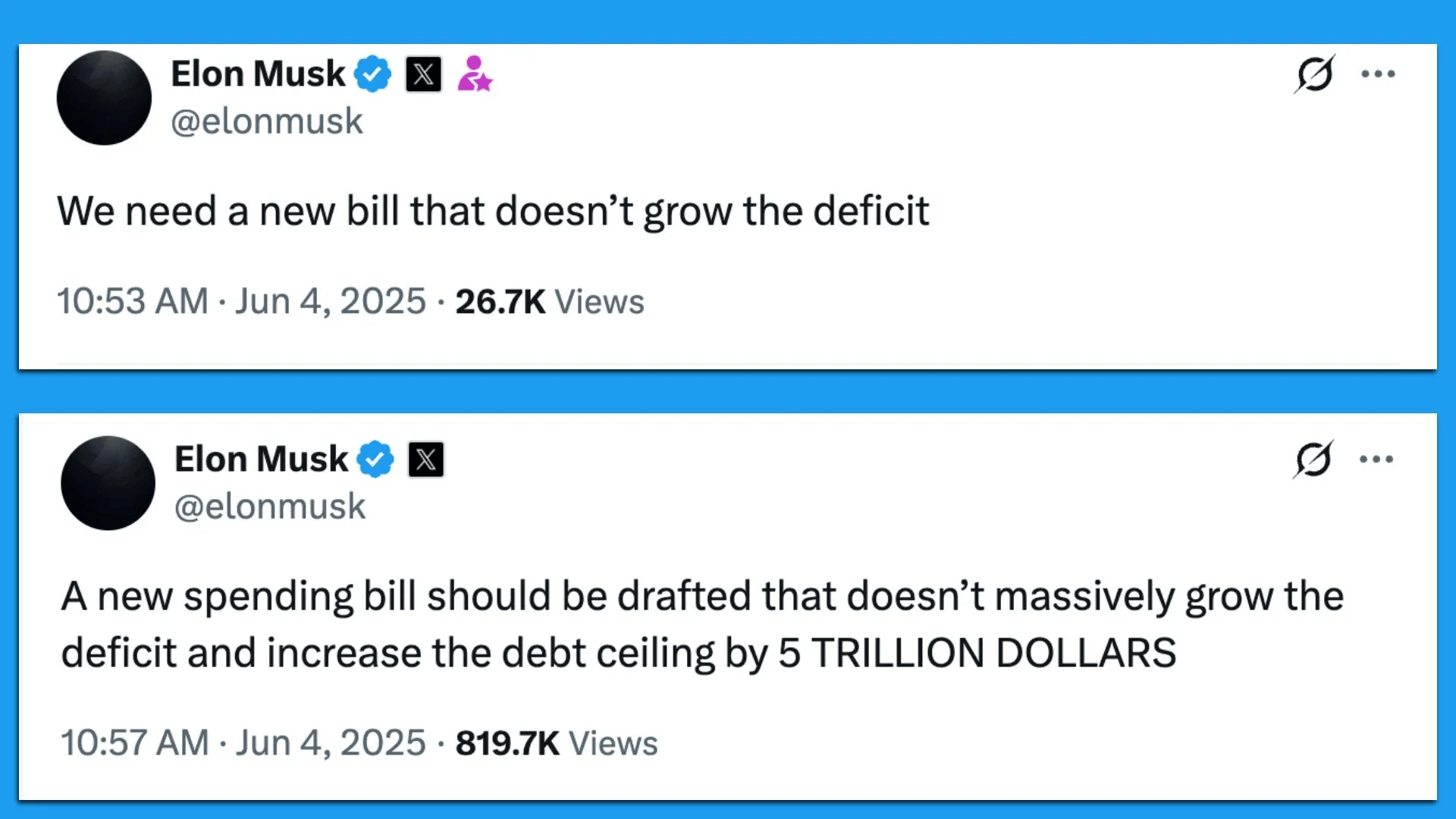 Musk Just Went Nuclear on Trump-----
Musk Just Went Nuclear on Trump-----
Genocide of non-Satanists implied by the name "Project Esther." The Jewish holiday "Purim" celebrates this Gentile holocaust.Queen Esther was responsible for the extermination of millions of Persians restless under the Jewish yoke.Palentir Making a Data Base of AntisemitesProject Esther targets people for Palantir murder lists: analyst"Would you like to know that Palantir has an enemies list of U.S. citizens as well?This is confirmed and verified, that Palantir has a list that they maintain for the CIA, for federal law enforcement, of one to two million Americans that they have classified as potential political dissidents."- (Israel and its "American" backers must be held accountable for this)Hamdy Mig--"Today I went to Al-Shifa Medical Hospital because of a health problem that I had, which was caused by malnutrition and lack of food. They gave me IV fluids and the nurses gave me some medicine to replace food, but I was ashamed of myself when I saw the children suffering from diseases due to lack of food and the risk of starvation. This has become a routine and repeated scene that we see everywhere. We demand that they bring in food only so that we do not die of hunger and no one responds to us. I took these pictures of some of the children while I was in the hospital."A Way to Help GazaPearl Davis - "Women are the source of evil."The Great Replacement of Canada w/ Third Worlders ("1 Out of 4 people in Canada are NOT born in Canada") 6/4/25Vira Frei does a very good job of explaining exactly how the Communist/Globalist Takeover and Control of Canada is in full swing. Justin Trudeau (son of Fidel Castro) was the communist Infiltraitor installed to acclimate the Canadian public to non Christian mores and social DECONSTRUCTION with the inculcation of Marxist ideology, including the promotion of homosexual degeneracy, "gay marriage", and the "celebration" of degeneracy and perversion with "Gay Pride Month,' Gay Pride Parades, etc.And to fill up Canadian cities and towns with MILLIONS of illegal Third World Invaders. Overnight, he was replaced by another globalist/ bankster /puppet, Marxist-promoter with no less than citizenship in THREE different countries, with ZERO Legitimacy or Credibility, yet he "wins" the election? COMPARE this downward decent into Communist Hell with the Liberal BS artists and liars versus the MIRACULOUS turnaround we've experienced in the USA with Donald Trump, DOGE, Executive Orders, etc. reversing YEARS of treachery and Treason practically OVERNIGHT. Americans must AWAKEN to the dire Plight of Canada and HELP them reverse this calamity!-Chinese Freemasons flock to Nanaimo for national conventionAbout 100 members of Chinese Freemason branches from B.C. to Quebec are expected to descend on Nanaimo's Best Western for the organization's 40th national convention in Canada this weekendCanada's Chinese Freemasons were major backers of Dr. Sun Yat-Sen's revolution, which attempted to establish a democratic state in China from 1912 to 1949. However, Sun never made good on his political promises to the group when he became the country's provisional president, Chen said. It's only more recently that Chinese Freemasons have leaned toward the Beijing government rather than the Taiwan government, Chen said."--
(Israel and its "American" backers must be held accountable for this)Hamdy Mig--"Today I went to Al-Shifa Medical Hospital because of a health problem that I had, which was caused by malnutrition and lack of food. They gave me IV fluids and the nurses gave me some medicine to replace food, but I was ashamed of myself when I saw the children suffering from diseases due to lack of food and the risk of starvation. This has become a routine and repeated scene that we see everywhere. We demand that they bring in food only so that we do not die of hunger and no one responds to us. I took these pictures of some of the children while I was in the hospital."A Way to Help GazaPearl Davis - "Women are the source of evil."The Great Replacement of Canada w/ Third Worlders ("1 Out of 4 people in Canada are NOT born in Canada") 6/4/25Vira Frei does a very good job of explaining exactly how the Communist/Globalist Takeover and Control of Canada is in full swing. Justin Trudeau (son of Fidel Castro) was the communist Infiltraitor installed to acclimate the Canadian public to non Christian mores and social DECONSTRUCTION with the inculcation of Marxist ideology, including the promotion of homosexual degeneracy, "gay marriage", and the "celebration" of degeneracy and perversion with "Gay Pride Month,' Gay Pride Parades, etc.And to fill up Canadian cities and towns with MILLIONS of illegal Third World Invaders. Overnight, he was replaced by another globalist/ bankster /puppet, Marxist-promoter with no less than citizenship in THREE different countries, with ZERO Legitimacy or Credibility, yet he "wins" the election? COMPARE this downward decent into Communist Hell with the Liberal BS artists and liars versus the MIRACULOUS turnaround we've experienced in the USA with Donald Trump, DOGE, Executive Orders, etc. reversing YEARS of treachery and Treason practically OVERNIGHT. Americans must AWAKEN to the dire Plight of Canada and HELP them reverse this calamity!-Chinese Freemasons flock to Nanaimo for national conventionAbout 100 members of Chinese Freemason branches from B.C. to Quebec are expected to descend on Nanaimo's Best Western for the organization's 40th national convention in Canada this weekendCanada's Chinese Freemasons were major backers of Dr. Sun Yat-Sen's revolution, which attempted to establish a democratic state in China from 1912 to 1949. However, Sun never made good on his political promises to the group when he became the country's provisional president, Chen said. It's only more recently that Chinese Freemasons have leaned toward the Beijing government rather than the Taiwan government, Chen said."--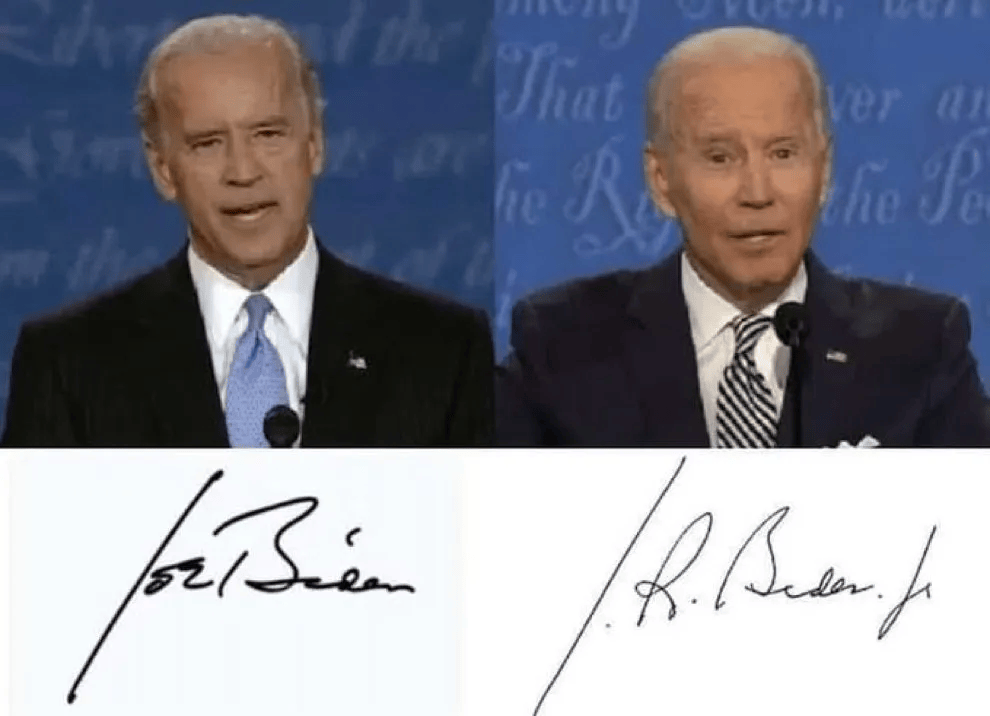 The Clone Wars Have Already BegunThe Science of Identity Replication Is Already Here by Joshua Stylman"Anyone around me for the last few years knows I've believed Biden isn't the same person who served as Vice President--that's not a political view, just pattern recognition. We are being told to ignore our eyes. A man with different ears, different teeth, different skull shape, different voice, different gait, and what feels like a different soul is said to be the same man. To say otherwise is treated as madness."-Joe Biden accused of giving billions to his cronies running green projects during his final weeks"Republicans in Congress are investigating ties between a Biden-era $27 billion green fund at the Environmental Protection Agency and former Democratic staffers."They can throw that money out to NGOs and it will never be recovered. I doubt anyone will be arrested. Accusations without action are worse than worthless because it makes the people think they are holding someone accountable. It's all for show.-Let's Get Real - Iran Wouldn't Be Moving More Air Defense Systems Around Their Nuclear Facilities If They Planned To Make Peace With Trumpby Michael Snyderhttps://michaeltsnyder.substack.com/p/lets-get-real-iran-wouldnt-be-moving"The Iranians have already decided what they are going to do, but they are going to stretch the peace talks out for as long as possible in order to buy a little bit more time.Trump--"We also discussed Iran, and the fact that time is running out on Iran's decision pertaining to nuclear weapons, which must be made quickly! I stated to President Putin that Iran cannot have a nuclear weapon and, on this, I believe that we were in agreement. President Putin suggested that he will participate in the discussions with Iran and that he could, perhaps, be helpful in getting this brought to a rapid conclusion. It is my opinion that Iran has been slowwalking their decision on this very important matter, and we will need a definitive answer in a very short period of time!"---
The Clone Wars Have Already BegunThe Science of Identity Replication Is Already Here by Joshua Stylman"Anyone around me for the last few years knows I've believed Biden isn't the same person who served as Vice President--that's not a political view, just pattern recognition. We are being told to ignore our eyes. A man with different ears, different teeth, different skull shape, different voice, different gait, and what feels like a different soul is said to be the same man. To say otherwise is treated as madness."-Joe Biden accused of giving billions to his cronies running green projects during his final weeks"Republicans in Congress are investigating ties between a Biden-era $27 billion green fund at the Environmental Protection Agency and former Democratic staffers."They can throw that money out to NGOs and it will never be recovered. I doubt anyone will be arrested. Accusations without action are worse than worthless because it makes the people think they are holding someone accountable. It's all for show.-Let's Get Real - Iran Wouldn't Be Moving More Air Defense Systems Around Their Nuclear Facilities If They Planned To Make Peace With Trumpby Michael Snyderhttps://michaeltsnyder.substack.com/p/lets-get-real-iran-wouldnt-be-moving"The Iranians have already decided what they are going to do, but they are going to stretch the peace talks out for as long as possible in order to buy a little bit more time.Trump--"We also discussed Iran, and the fact that time is running out on Iran's decision pertaining to nuclear weapons, which must be made quickly! I stated to President Putin that Iran cannot have a nuclear weapon and, on this, I believe that we were in agreement. President Putin suggested that he will participate in the discussions with Iran and that he could, perhaps, be helpful in getting this brought to a rapid conclusion. It is my opinion that Iran has been slowwalking their decision on this very important matter, and we will need a definitive answer in a very short period of time!"--- From Italy to Japan, most people have negative views of Israel, poll findsNegative views of Israel outweigh positive ones even in countries that are traditionally strong backers, like Hungary and PolandEven in Poland, whose government is traditionally supportive of Israel, public sentiment was 62 percent negative. Likewise, in Hungary, 53 percent of respondents had a negative opinion of Israel.Israel approves construction of 22 settlements in occupied West BankAnnouncement includes legalization of nine previously constructed settlements in Palestinian territory--
From Italy to Japan, most people have negative views of Israel, poll findsNegative views of Israel outweigh positive ones even in countries that are traditionally strong backers, like Hungary and PolandEven in Poland, whose government is traditionally supportive of Israel, public sentiment was 62 percent negative. Likewise, in Hungary, 53 percent of respondents had a negative opinion of Israel.Israel approves construction of 22 settlements in occupied West BankAnnouncement includes legalization of nine previously constructed settlements in Palestinian territory-- Human depopulation orgs FDA and CDC to be AI-automated to achieve efficient extermination goals-Russ Winter-Financier (George Soros) of Migrant Caravans Identified But Not RevealedThe radical discordian leftists are the enemy. We all know this. They want unlimited immigration to reset and level the whole country.But what about the lying, crying, corrupt, boot-kissing RINO (Republican In Name Only) "cuckservatives"? They're in bed and fornicating with the Leftists to push for the American slave plantation. They might as be right out of the same Saul Alinsky mold."
Human depopulation orgs FDA and CDC to be AI-automated to achieve efficient extermination goals-Russ Winter-Financier (George Soros) of Migrant Caravans Identified But Not RevealedThe radical discordian leftists are the enemy. We all know this. They want unlimited immigration to reset and level the whole country.But what about the lying, crying, corrupt, boot-kissing RINO (Republican In Name Only) "cuckservatives"? They're in bed and fornicating with the Leftists to push for the American slave plantation. They might as be right out of the same Saul Alinsky mold." -
Site: non veni pacem
by Tyler Durden
On Tuesday, the Morning Midas—a roll-on/roll-off (RoRo) vehicle carrier—was abandoned by its crew in the central Pacific Ocean following an onboard fire, according to a Bloomberg report.
The vessel was transporting approximately 3,000 vehicles, including an estimated 800 electric vehicles (EVs). The fire’s origin has not been confirmed, though lithium-ion battery ignition remains a possible cause given the cargo profile and previous mid-sea incidents involving EVs (see here & here).
Morning Midas had departed China in late May with a scheduled port call in Mexico, according to Bloomberg data.
The US Coast Guard evacuated all 22 crew members from the RoRo carrier to a nearby merchant vessel earlier today. Coast Guard sea-based assets are en route to the incident area.
The ship’s manager, Zodiac Maritime, confirmed that smoke was billowing from the deck. A company spokesperson said salvage support teams are en route.
Insurance giant Allianz has long emphasized the need to strengthen safety protocols for all maritime shipments involving lithium-ion batteries given the proliferation of green tech around the world.
-
Site: LifeNews
If you’ve had a chance to read any of the stories I’ve written about the abortion-driven, stumbling Democrat party, you know that a common theme is not to rethink their embrace of baby killing and other stupid positions but to “reframe” them. Assumption? That the American people are gullible and stupid. The Democrats’ contempt for the intelligence of Americans is a primary reason they are in the shallow end of the electoral pool.
This reminded me of something I talked about a while back. The ACLU and the creative agency Oberland –the “purpose-driven ad agency”–had convinced themselves that they had a humdinger of a strategy to make abortion more palatable.
“Forcing people to rethink the language they use, how they empathize and understand who is being affected by these restrictions, might actually put pressure on legislation and these restrictive laws and these restrictive laws and help overturn them,” said Kate Charles. Oberland’s Chief Strategy Officer.
REACH PRO-LIFE PEOPLE WORLDWIDE! Advertise with LifeNews to reach hundreds of thousands of pro-life readers every week. Contact us today.
So what language were they proposing?
“I think getting people to say I’m pro-life is much easier to say than ‘I am pro-forced pregnancy,’”
It’s as simple as that? Changing “pro-life” to “forced pregnancy” and suddenly pro-lifers will be disarmed, falling into babbling incoherence and irrelevance?
Sort of. The ad [titled “Disclaimer”]follows a pregnant woman who wants an abortion. She is stymied by “unnecessary restrictions and politically-motivated bans,” we were told. It goes without saying that their ad campaign not only totally ignored the unborn child but also ridiculed protective legislation that many, many states have enacted .
“We felt by changing the terminology [to forcing pregnancy] we were highlighting the pregnant person’s life, and the cruelty and control that politicians are trying to enforce on people, which are very un-American, and these restrictive laws that are controlling bodies,” said Charles.
This is the Abortion Industry’s umpteenth iteration of isn’t-abortion-wonderful. They all have in common the same basic lie: Just ignore who it is that you are getting rid of. In this case, it’s just the same-old, same old: The ad “reframes the issue as a battle between government-mandated forced pregnancy and reproductive freedom.”
The campaign will follow up with a second spot, titled “Forced,” in February, which will air digitally and on streaming services. The spot shows what people seeking abortions are forced to deal with, including paying for care, hours of travel, taking unpaid leave from work and oftentimes, staying pregnant.
The campaign will also include digital ad units, which are geographically targeted to states where abortion access is restricted.
Only the willfully blind will fall for “forcing pregnancy.” You can “reframe” abortion six ways from Sunday but it remains a cruel, brutal, unnatural act.
LifeNews.com Note: Dave Andrusko is the editor of National Right to Life News and an author and editor of several books on abortion topics. He frequently writes Today’s News and Views — an online opinion column on pro-life issues.

The post No Matter What They Call Abortion, It’s Killing a Baby appeared first on LifeNews.com.
-
Site: Catholic ConclaveScandal at the Guémené-Penfao Mass: Witches in the SpotlightThis Sunday, June 1, 2025, the Saint-Pierre and Saint-Paul Church in Guémené-Penfao, in the Sainte-Anne-sur-Don-et-Vilaine Parish Complex (diocese of Nantes), was the scene of a disturbing event during Holy Mass, a case reported exclusively on Lecatho.fr by one of the Parishioners were outraged by this initiative.NB They use the French Catholic Conclavehttp://www.blogger.com/profile/06227218883606585321noreply@blogger.com0

